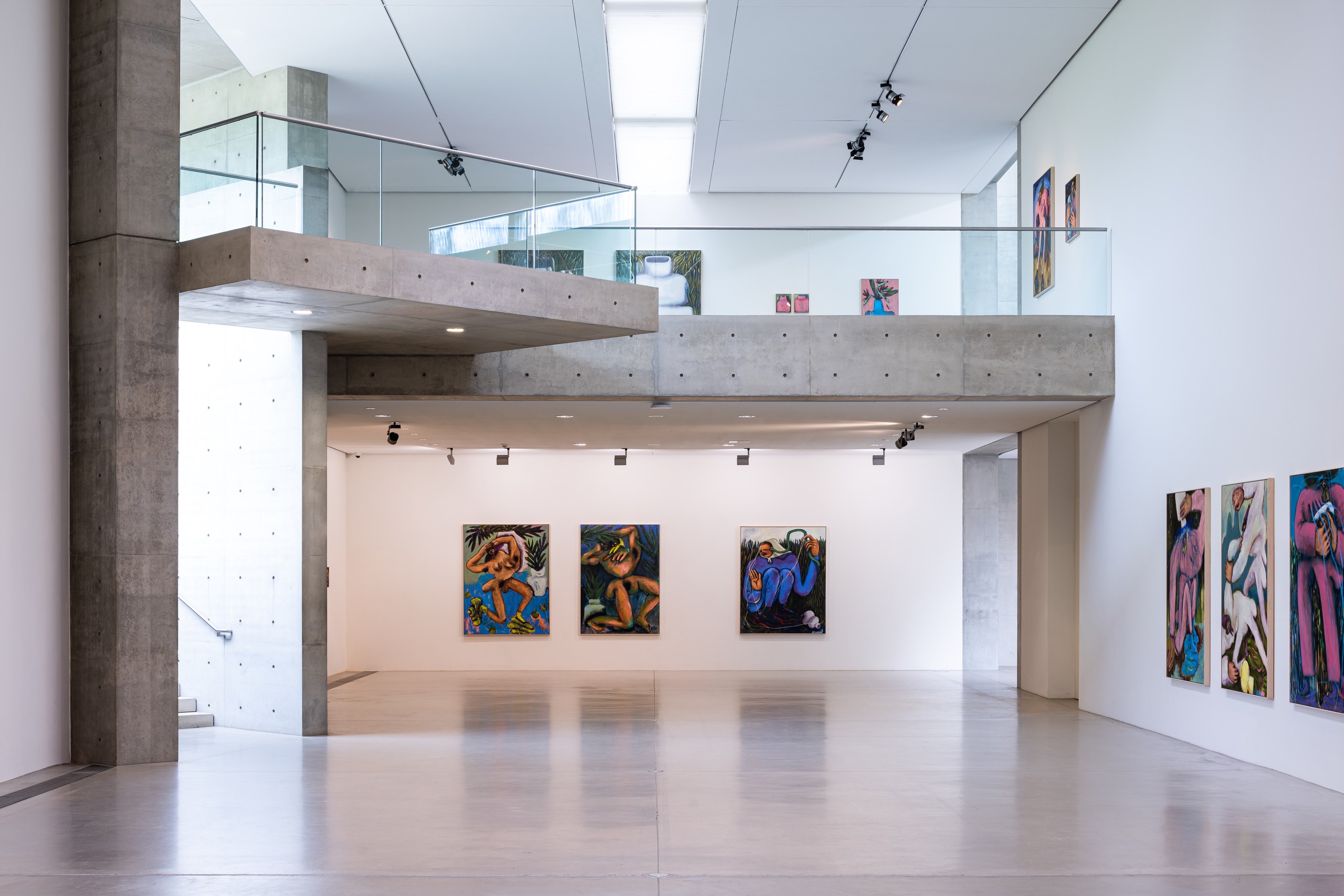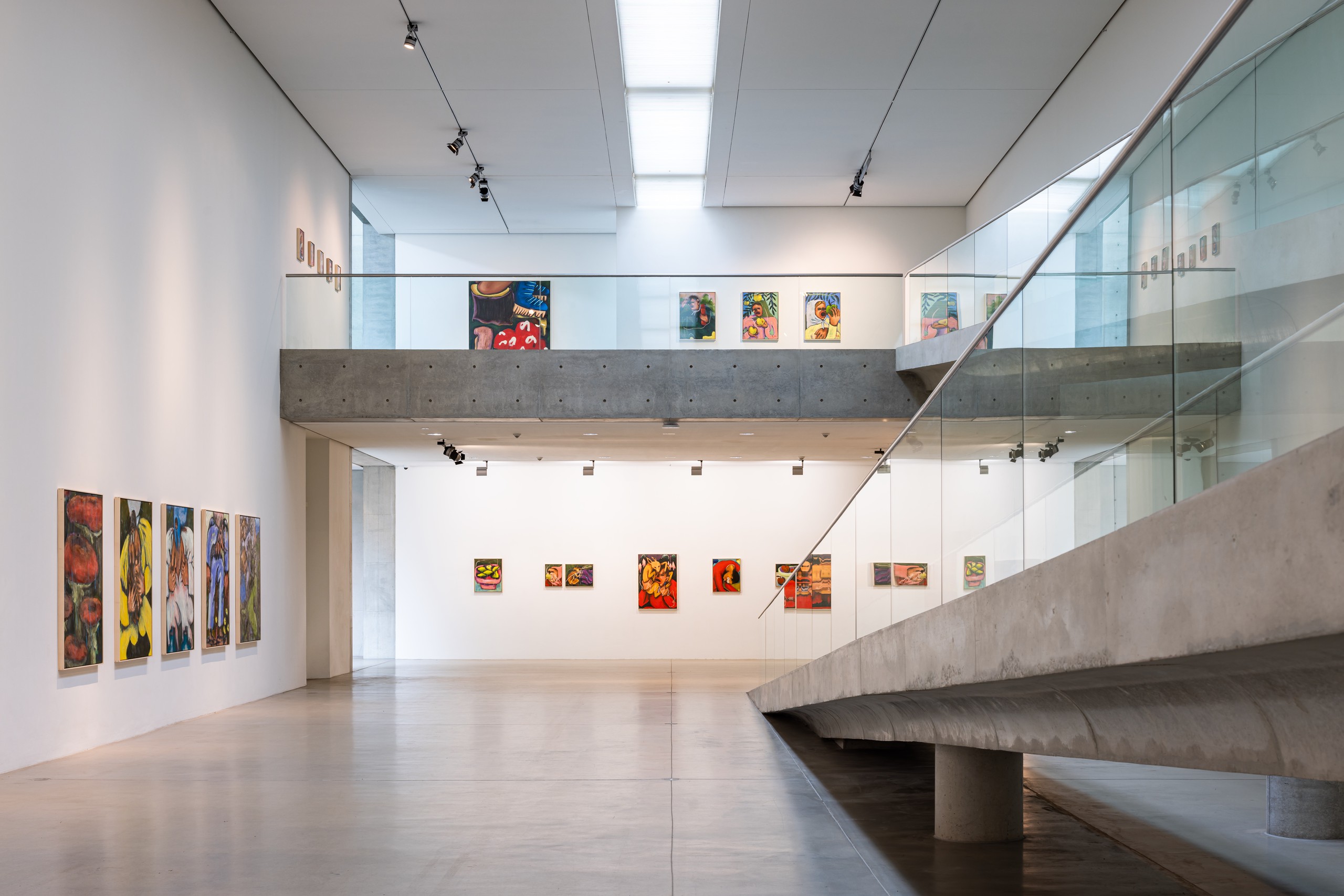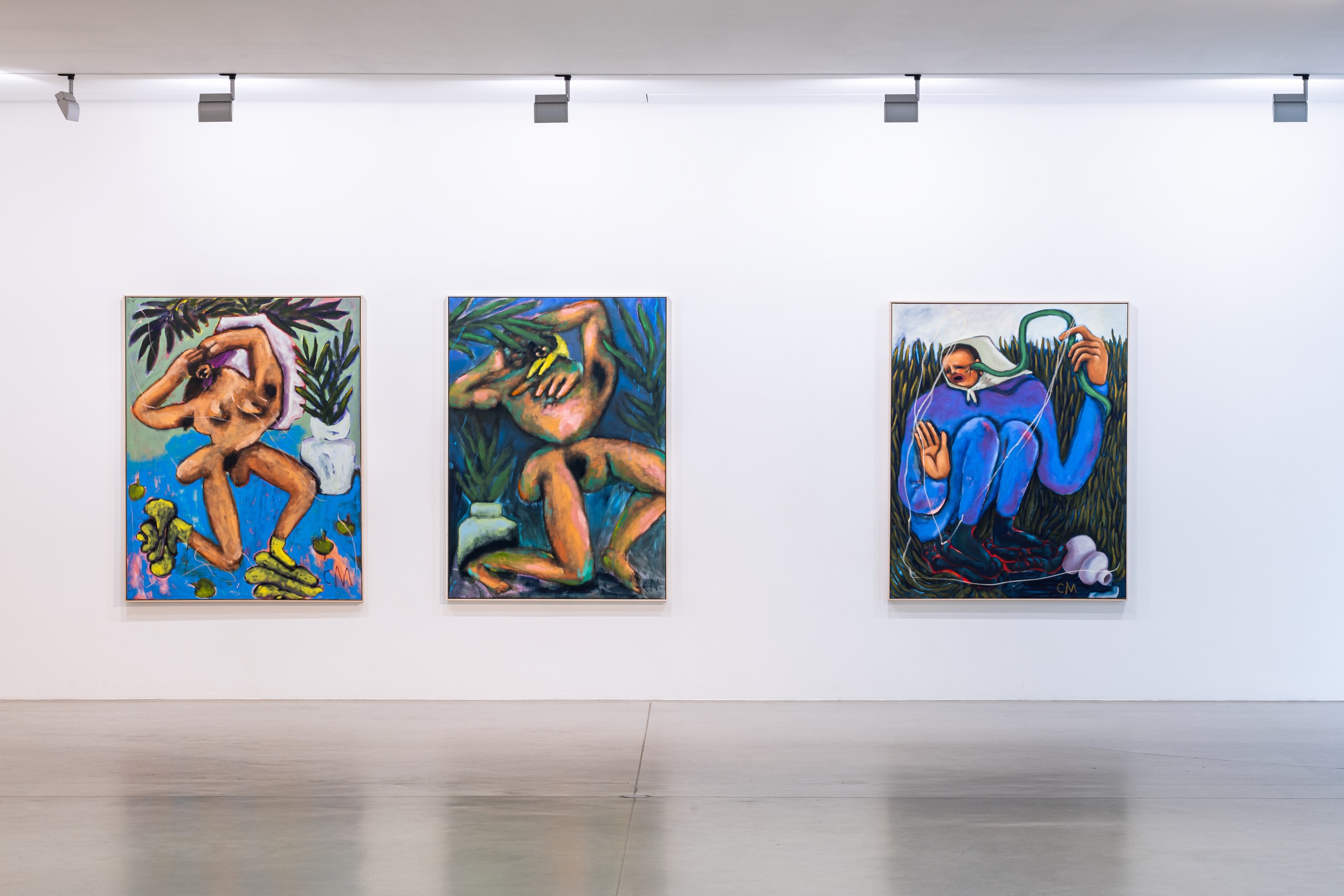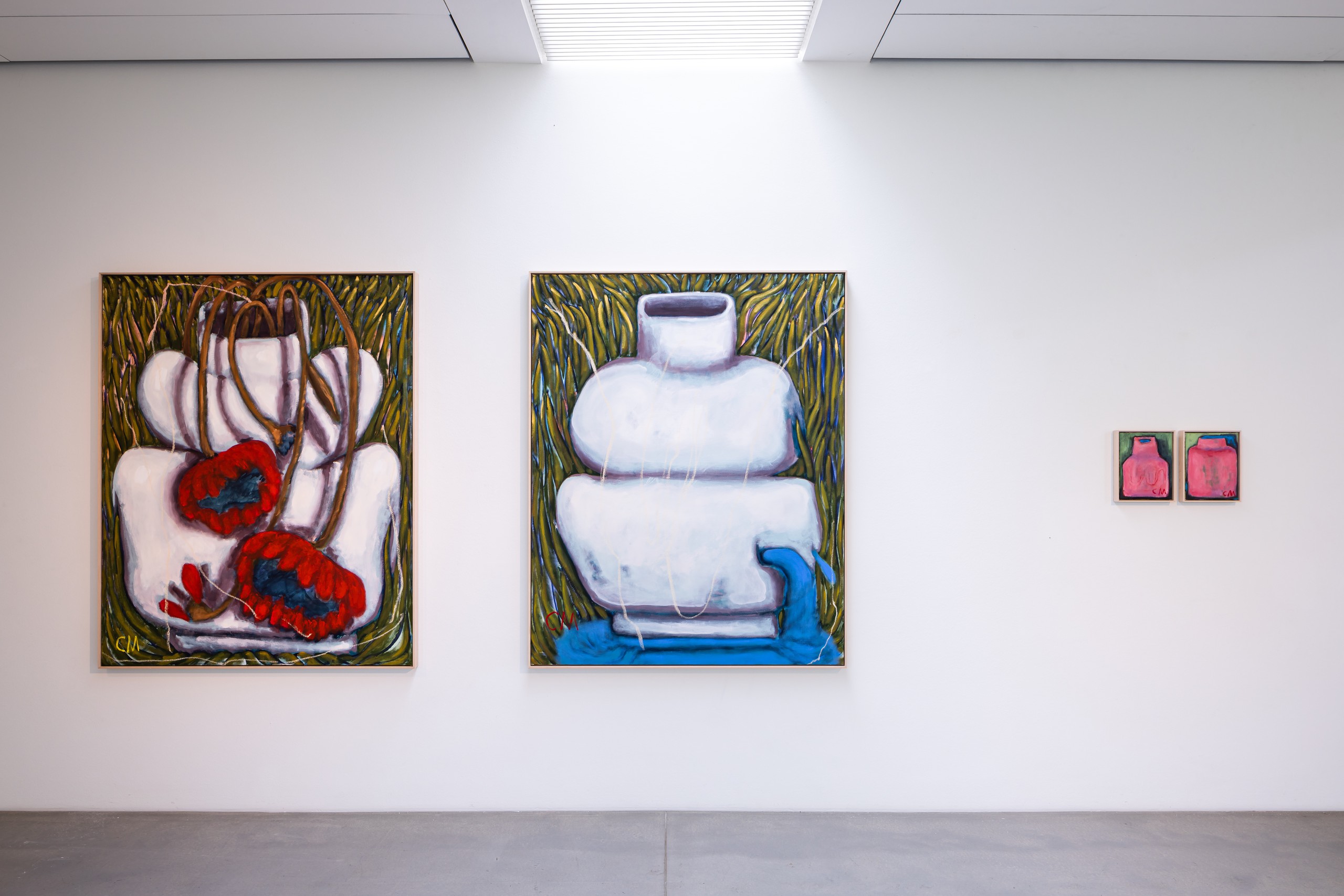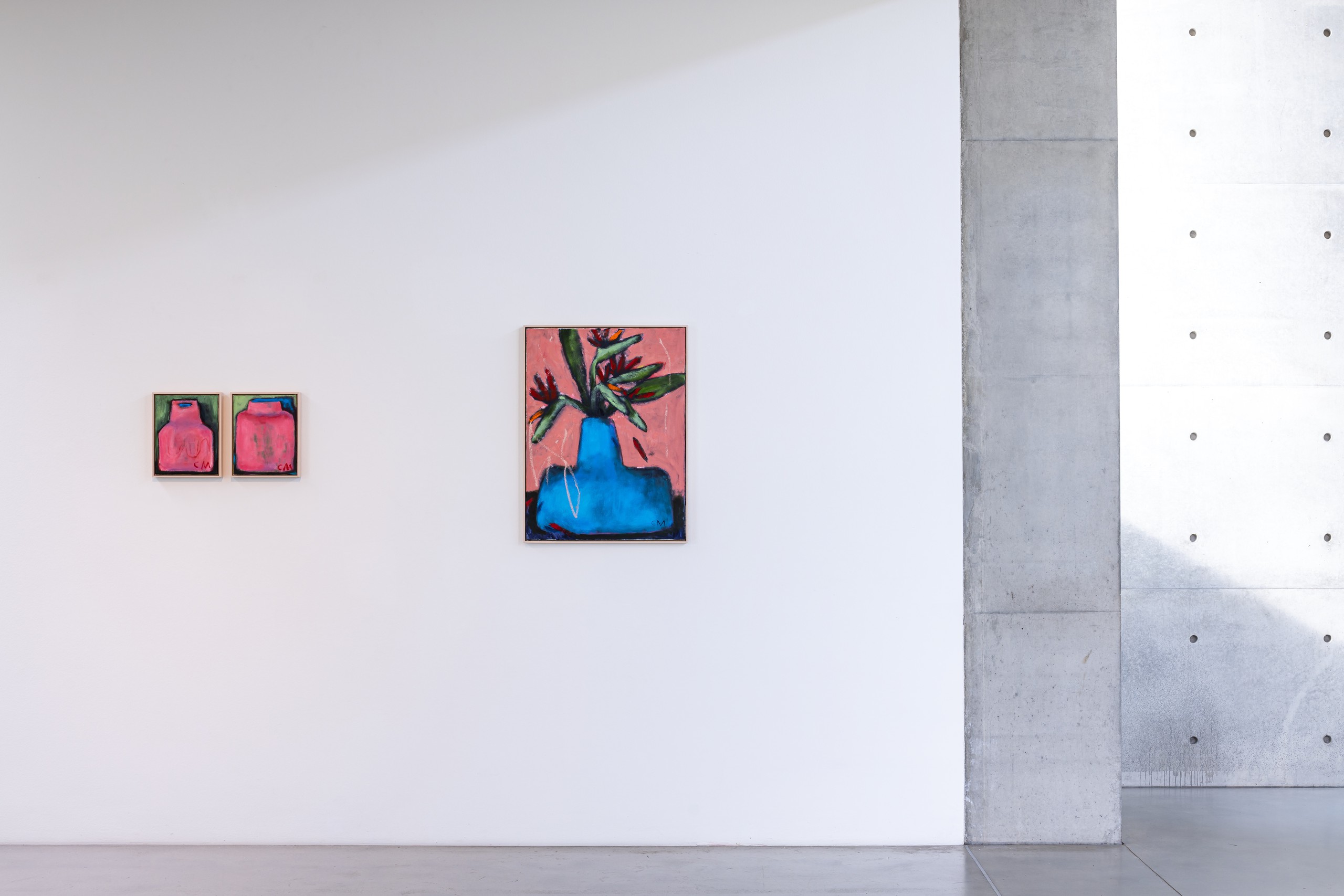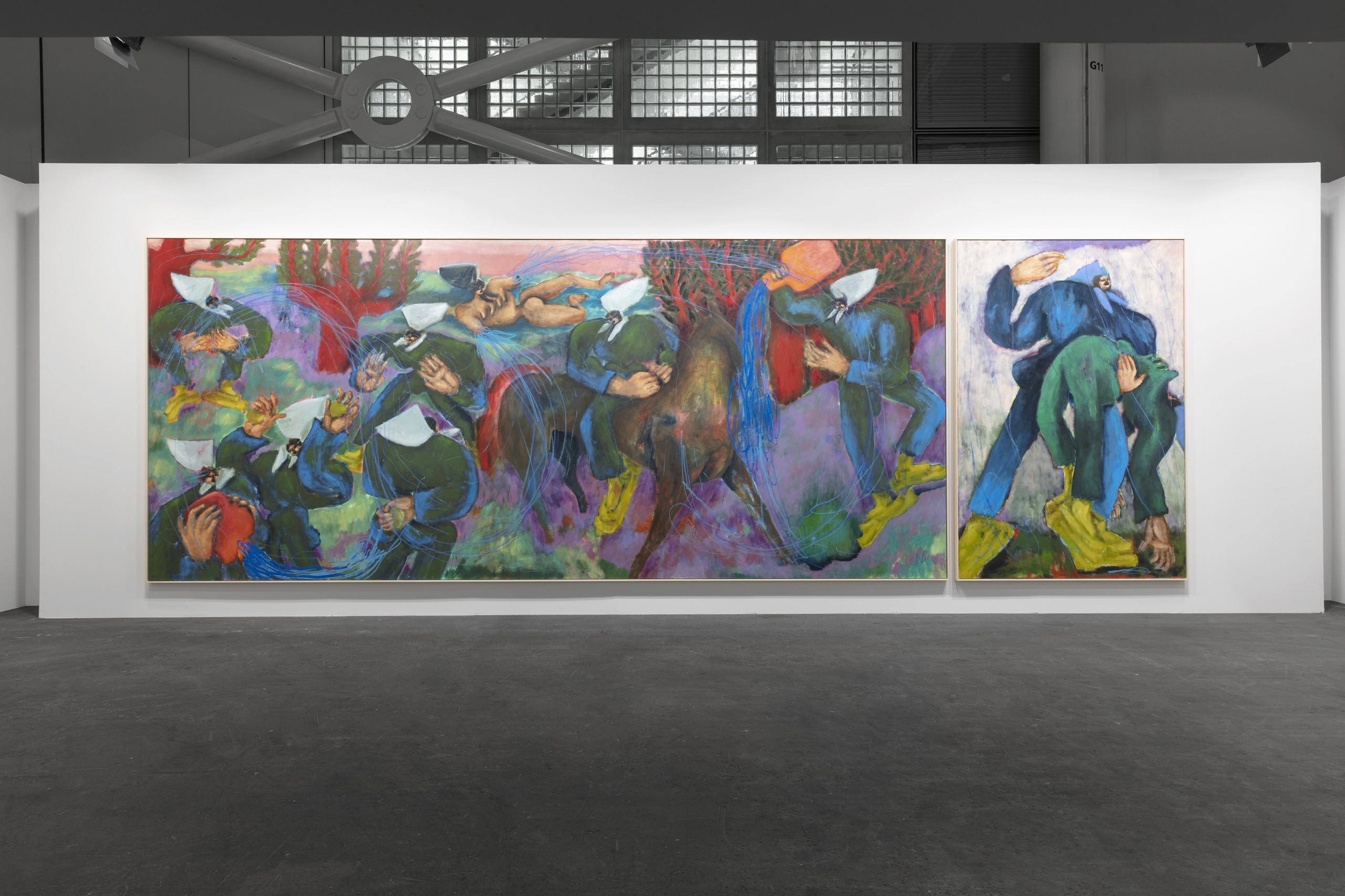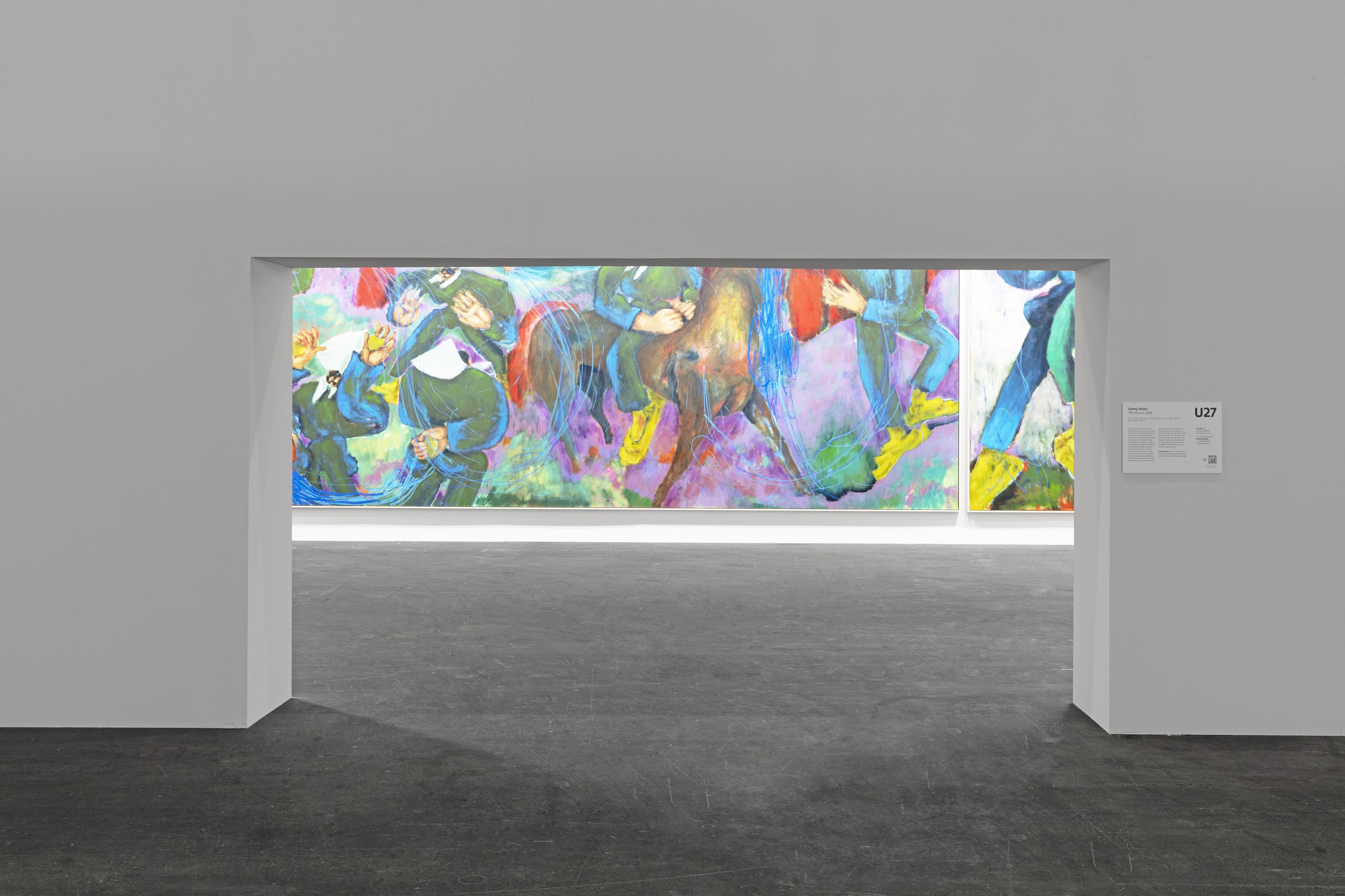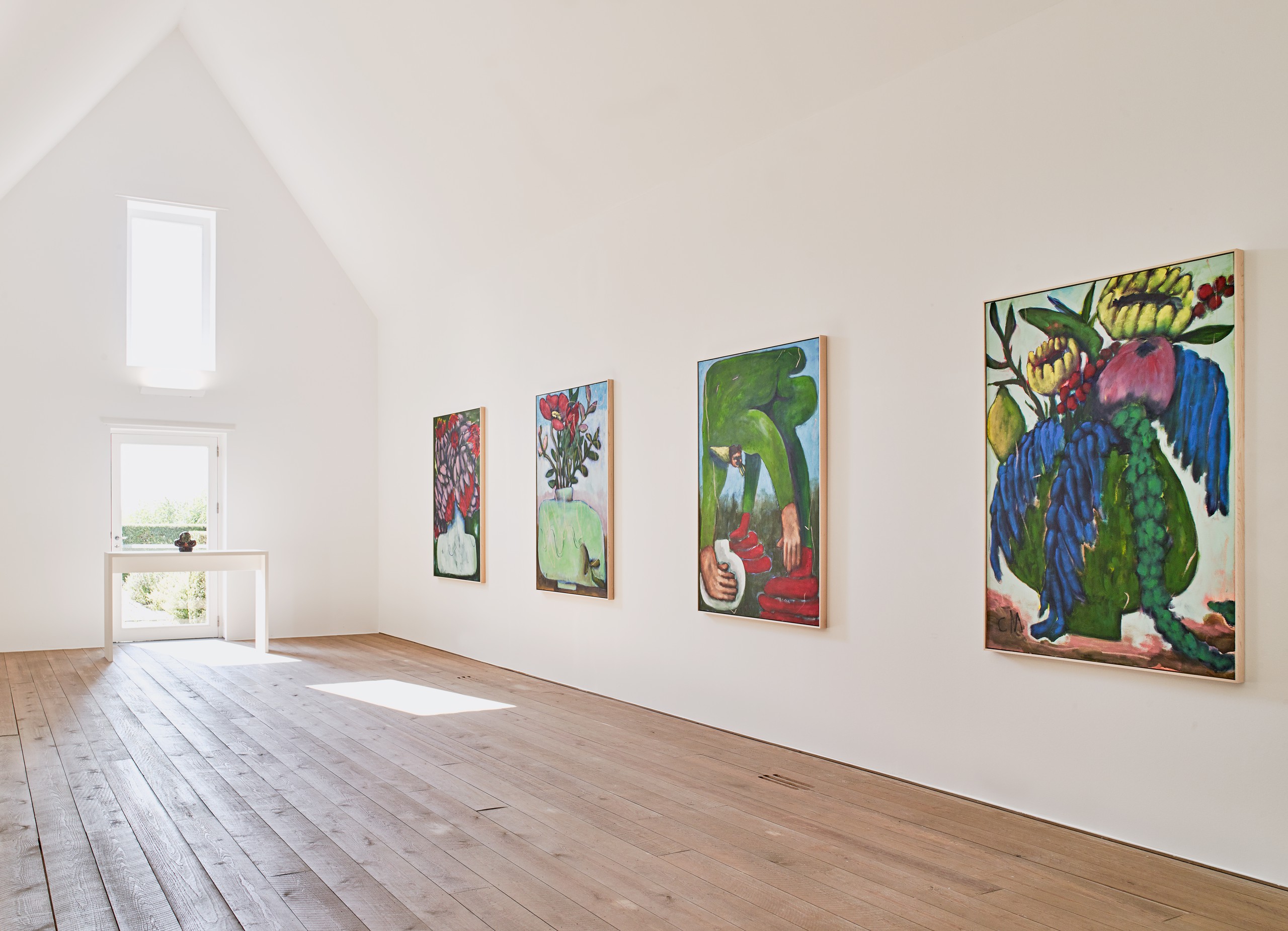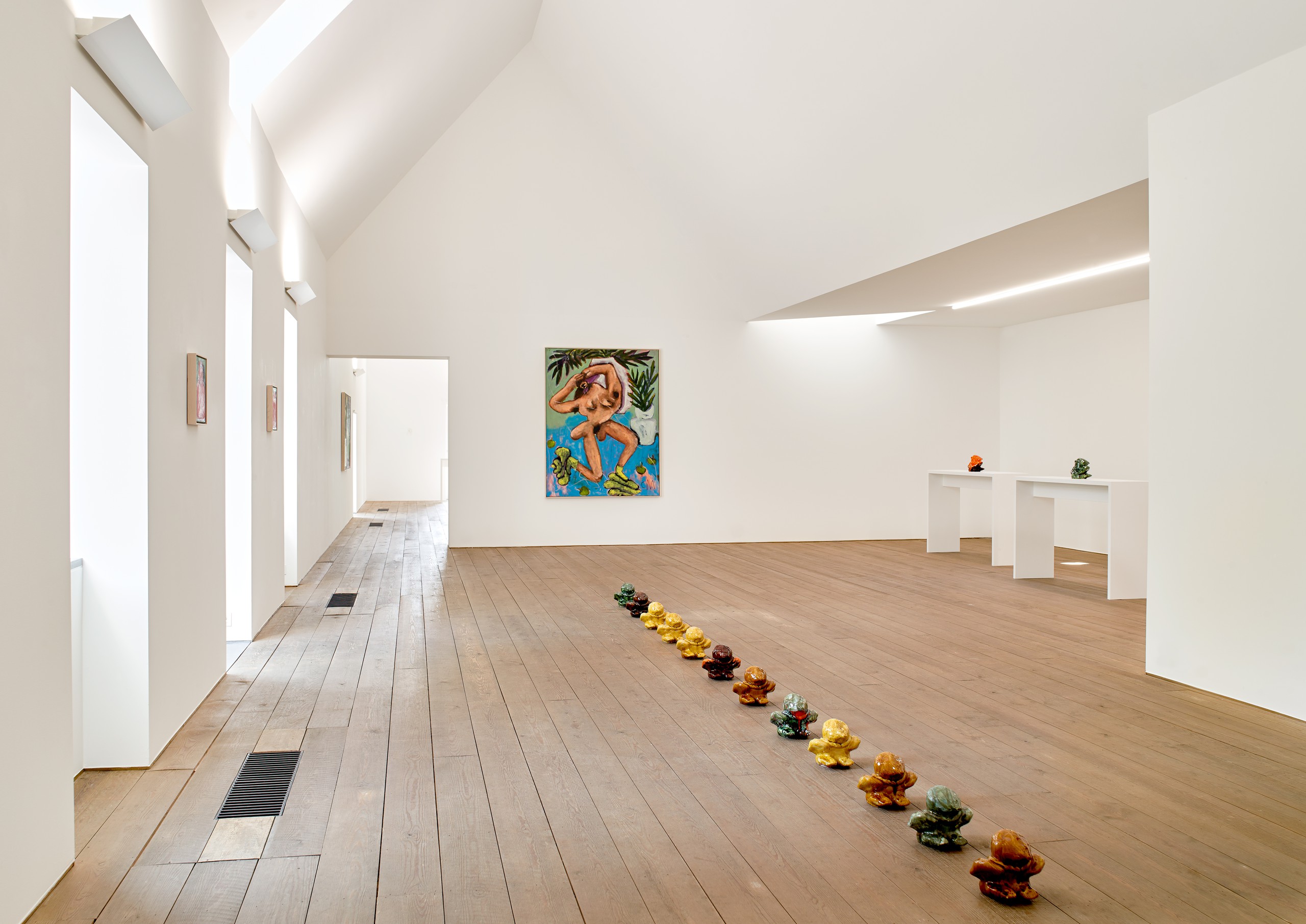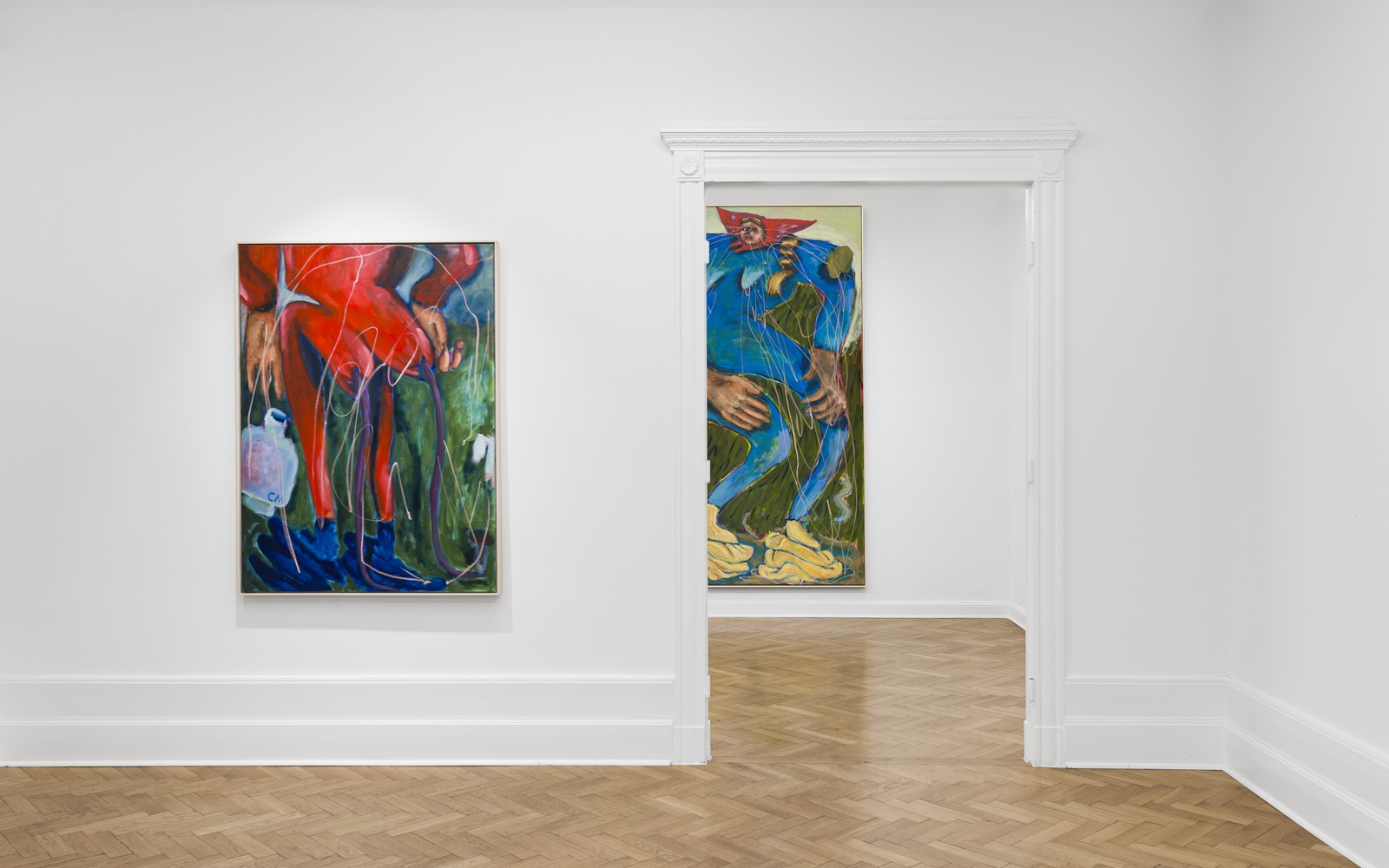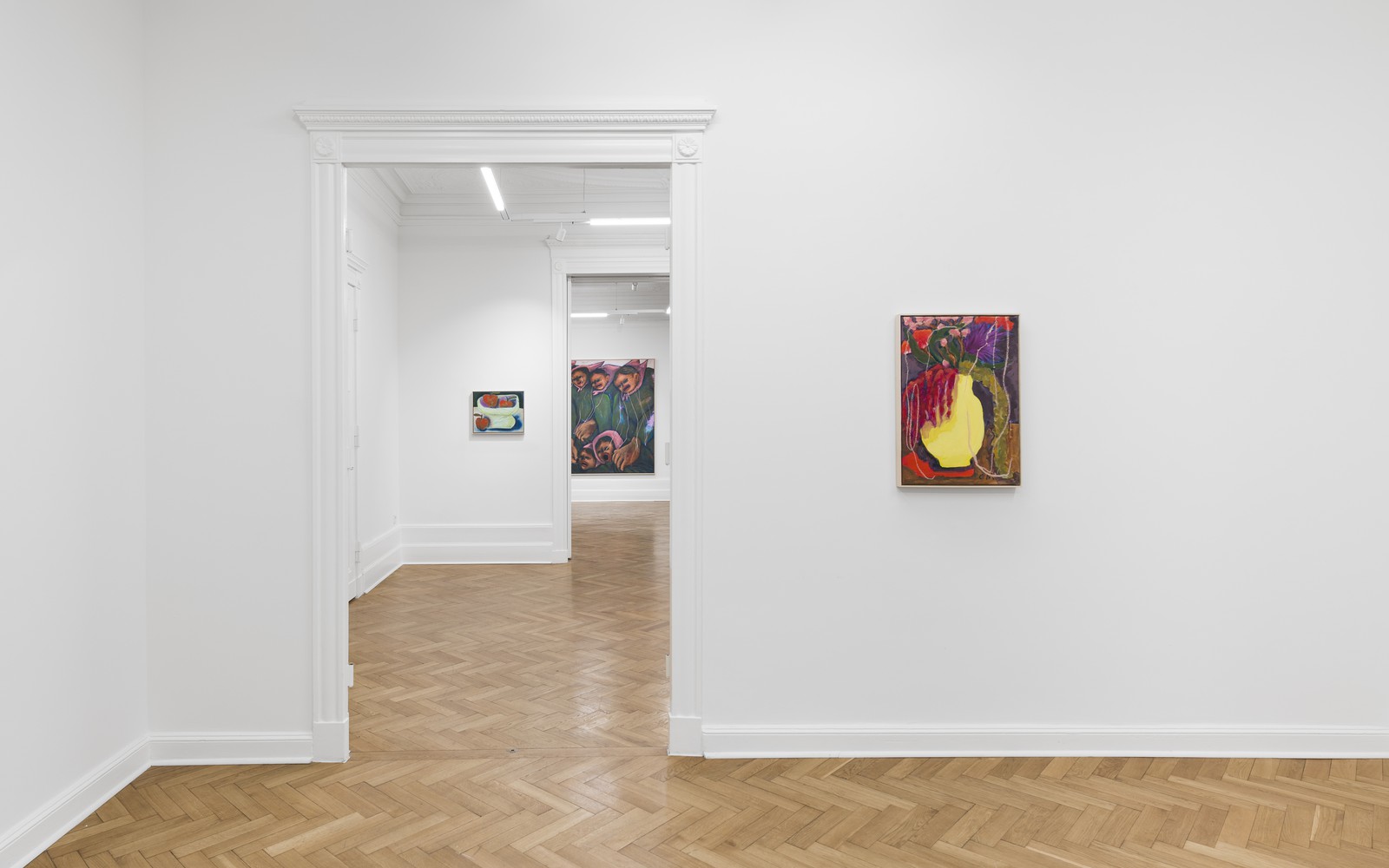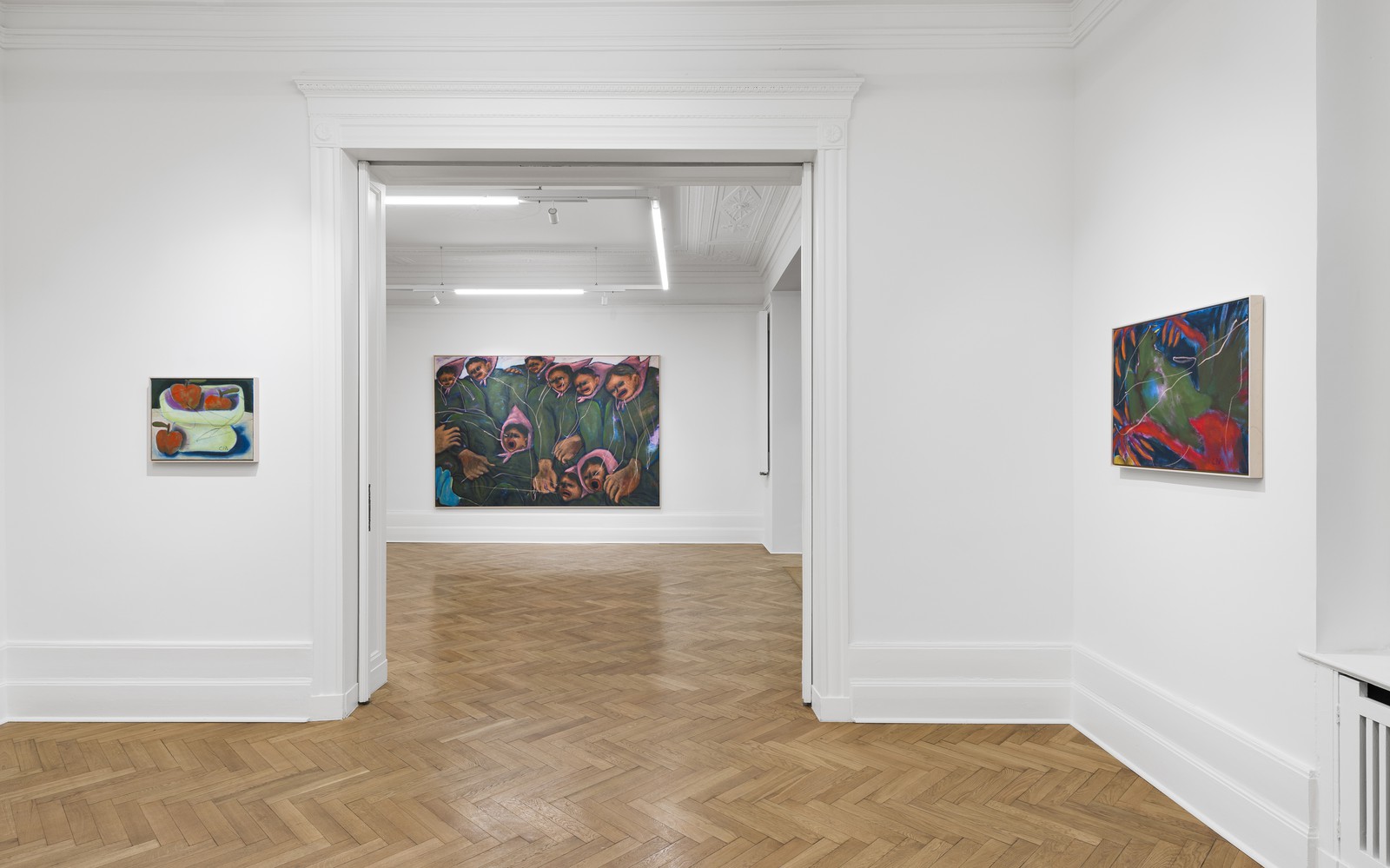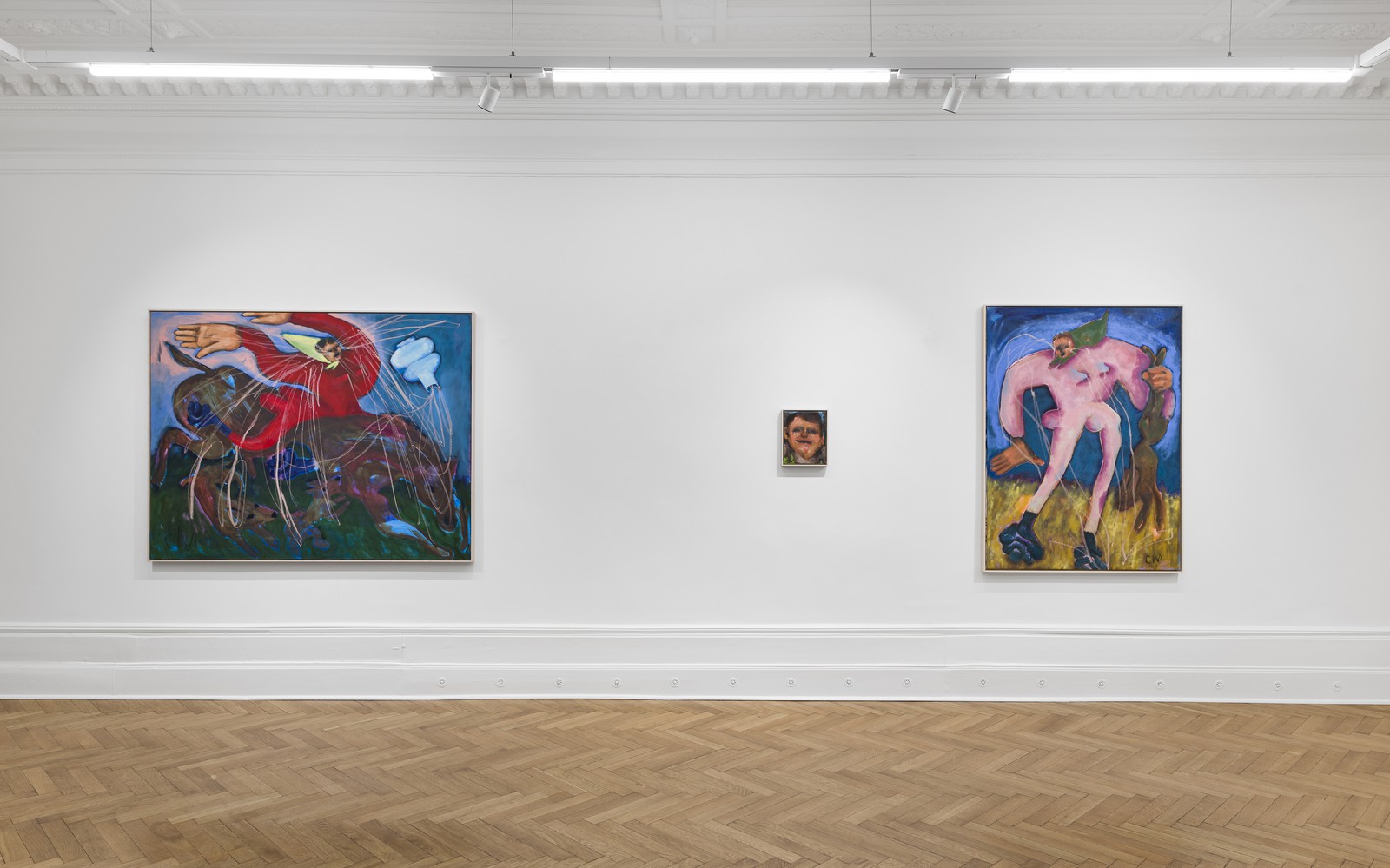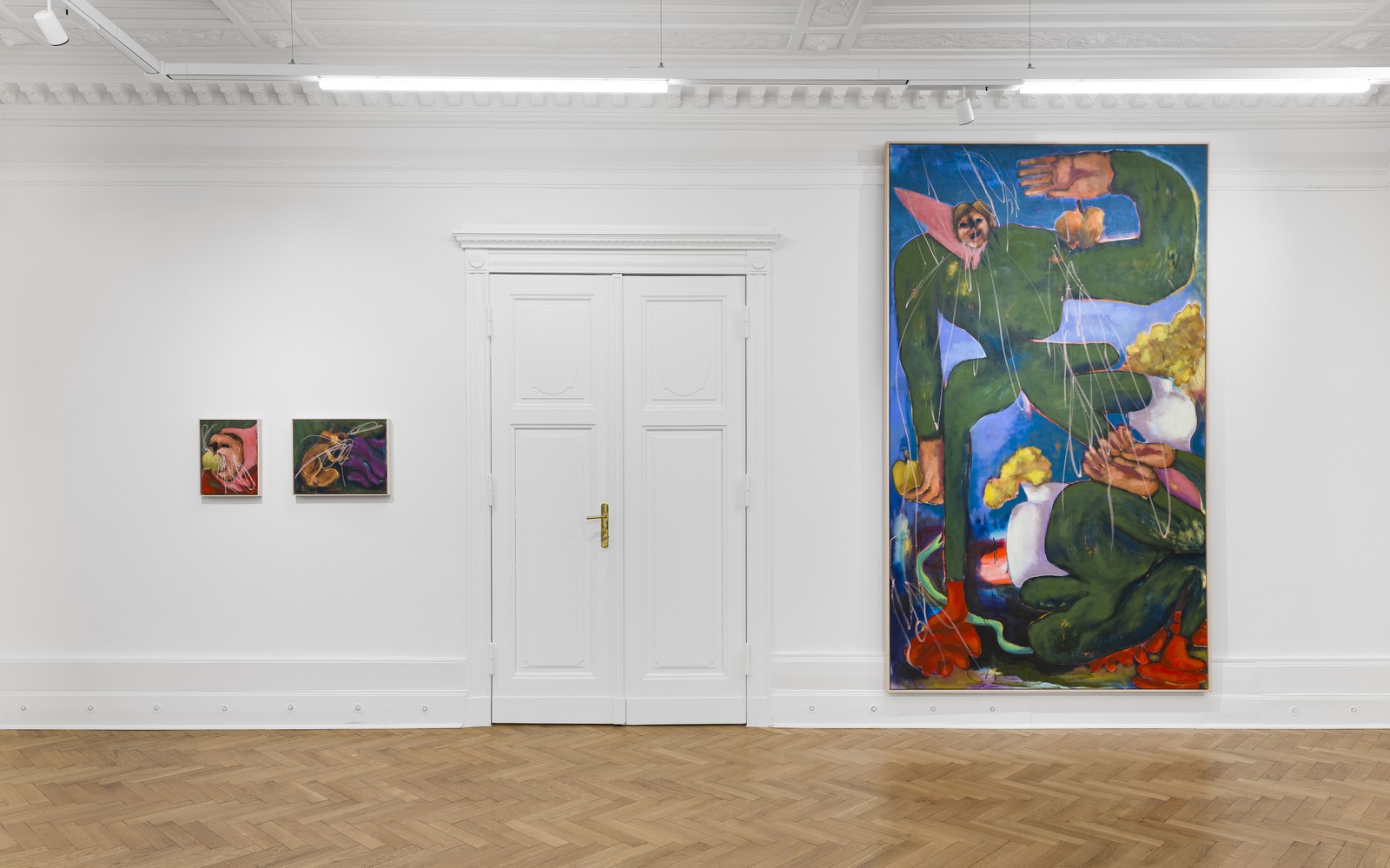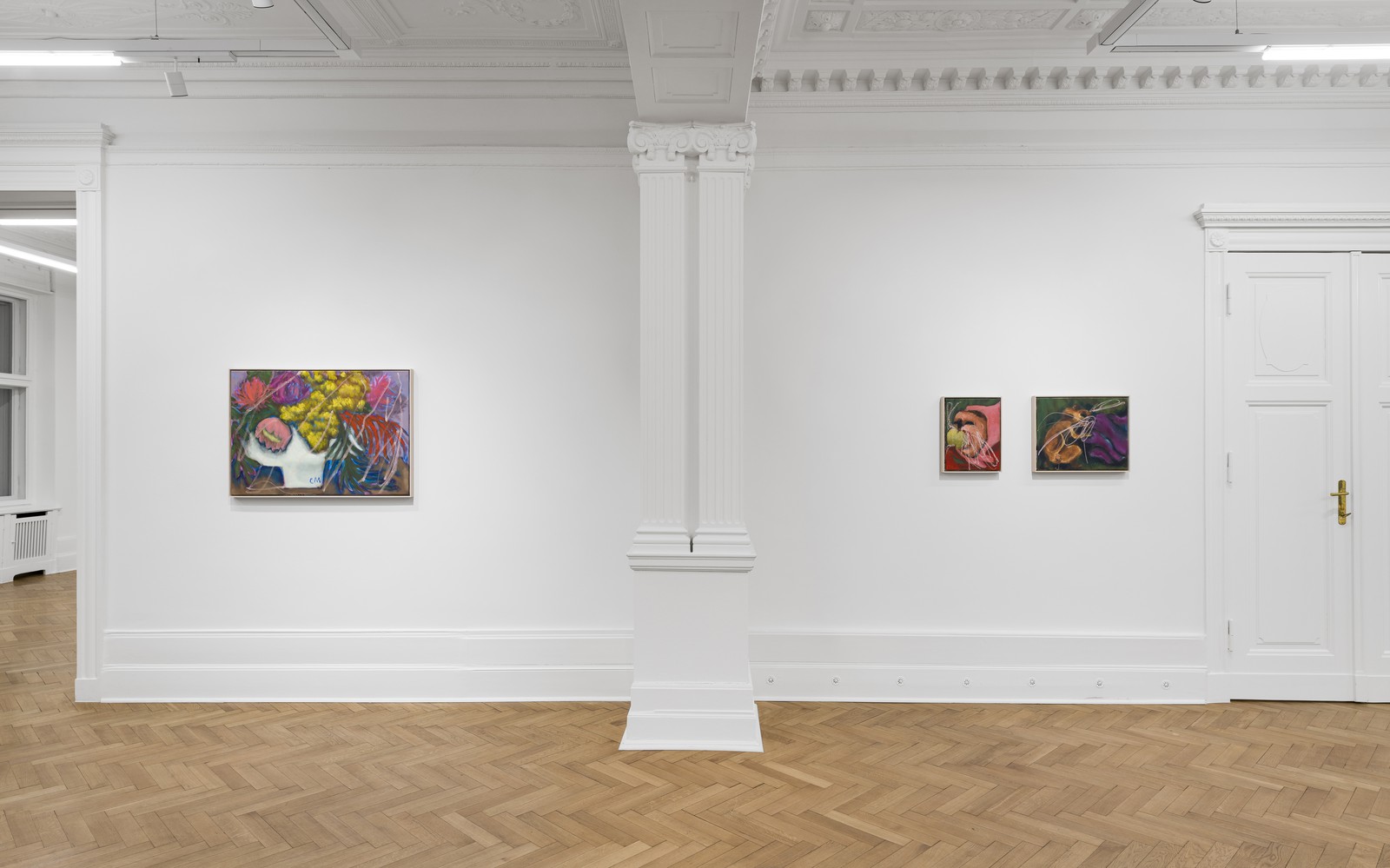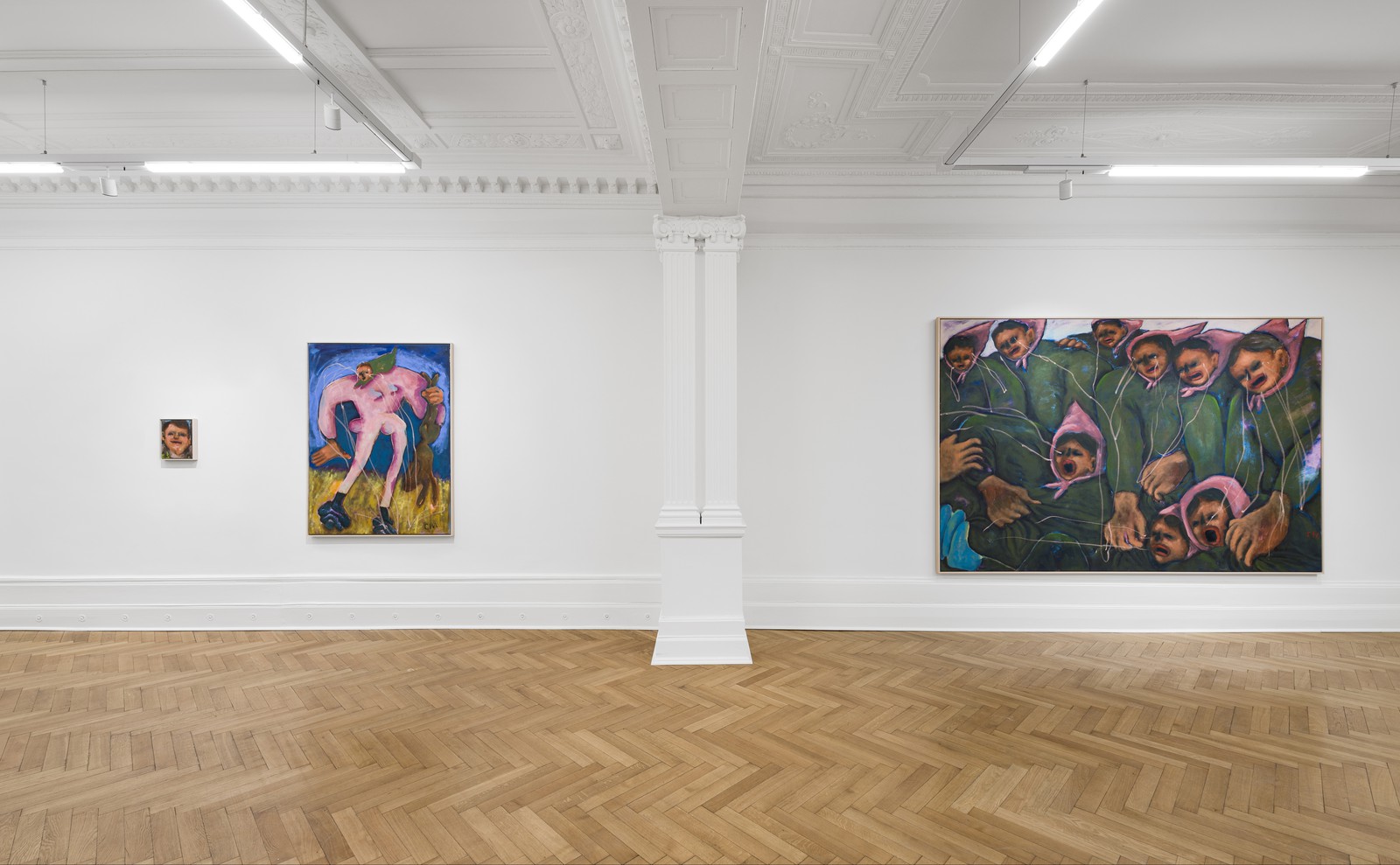Conny Maier
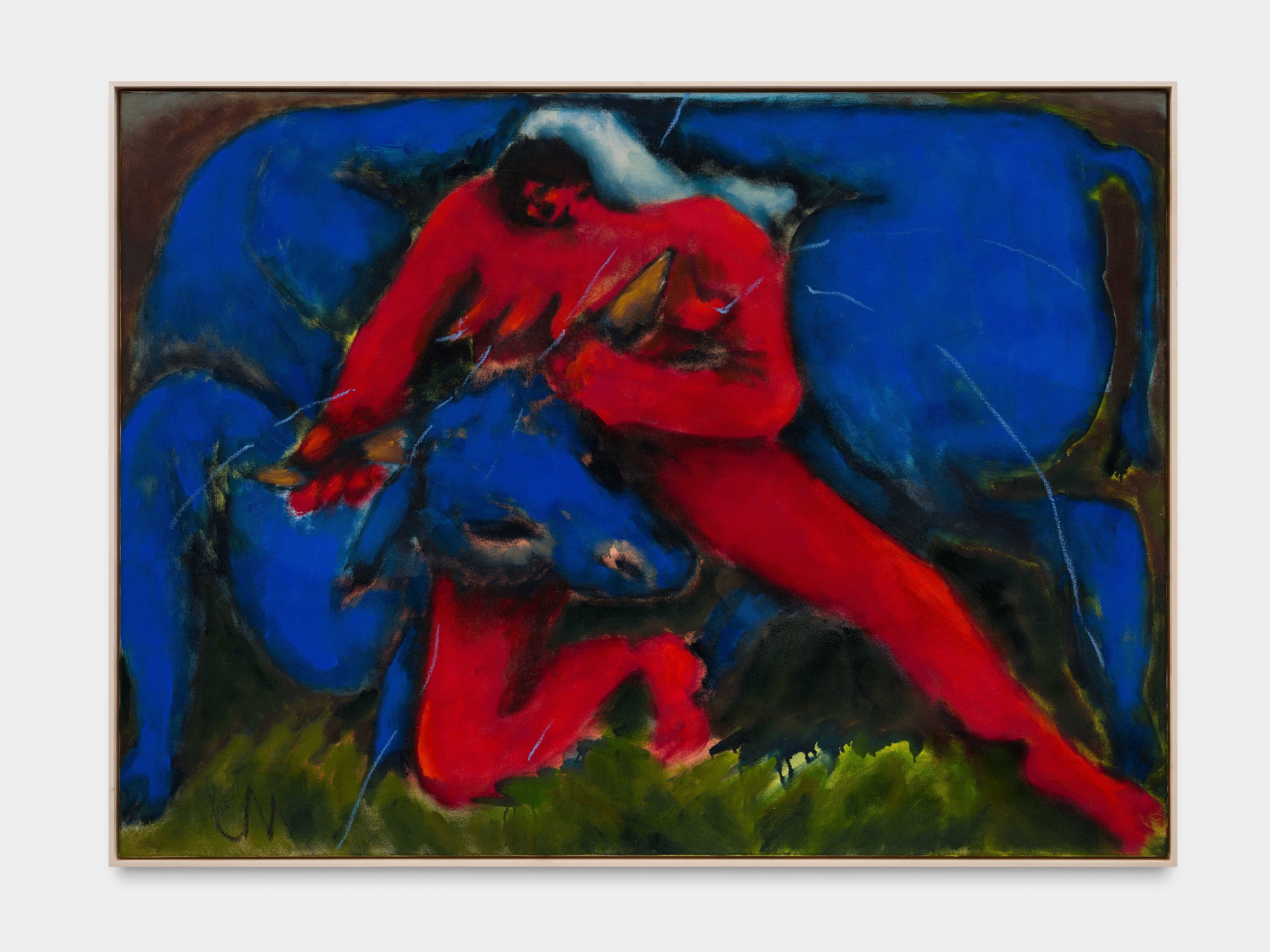
Conny Maier
Basel, 2023
Oil, oil stick, pigments on canvas
110 × 150 × 5 cm
43 1/2 × 59 × 2 in
German artist Conny Maier explores fundamental questions about human nature, ecology, dominance, and control. The off-kilter figuration in Maier’s paintings, coupled with the inter-species entanglements that her work depicts, articulate precarity and vulnerability as elemental states of being. Her painterly reflections on polarities like dominance and submission, equilibrium and instability, the human and the non-human take an unflinching look at the final throes of the Anthropocene, asking not only what should come to an end but what kind of new day might dawn.
Conny Maier lives and works in Berlin and Baleal, Portugal. She was selected as one of the three recipients of Deutsche Bank’s prestigious Artists of the Year Prize in 2021. Her large-scale solo exhibition Beautiful Disasters curated by Udo Kittelmann is currently on view at at the Langen Foundation, Neuss. Her work has recently been exhibited in solo and group exhibitions at venues including Art Basel Unlimited 2023, Basel; de 11 Lijnen, Oudenburg; Palais Populaire, Berlin; MUDEC, Milan; and at Museum Frieder Burda, Baden Baden.
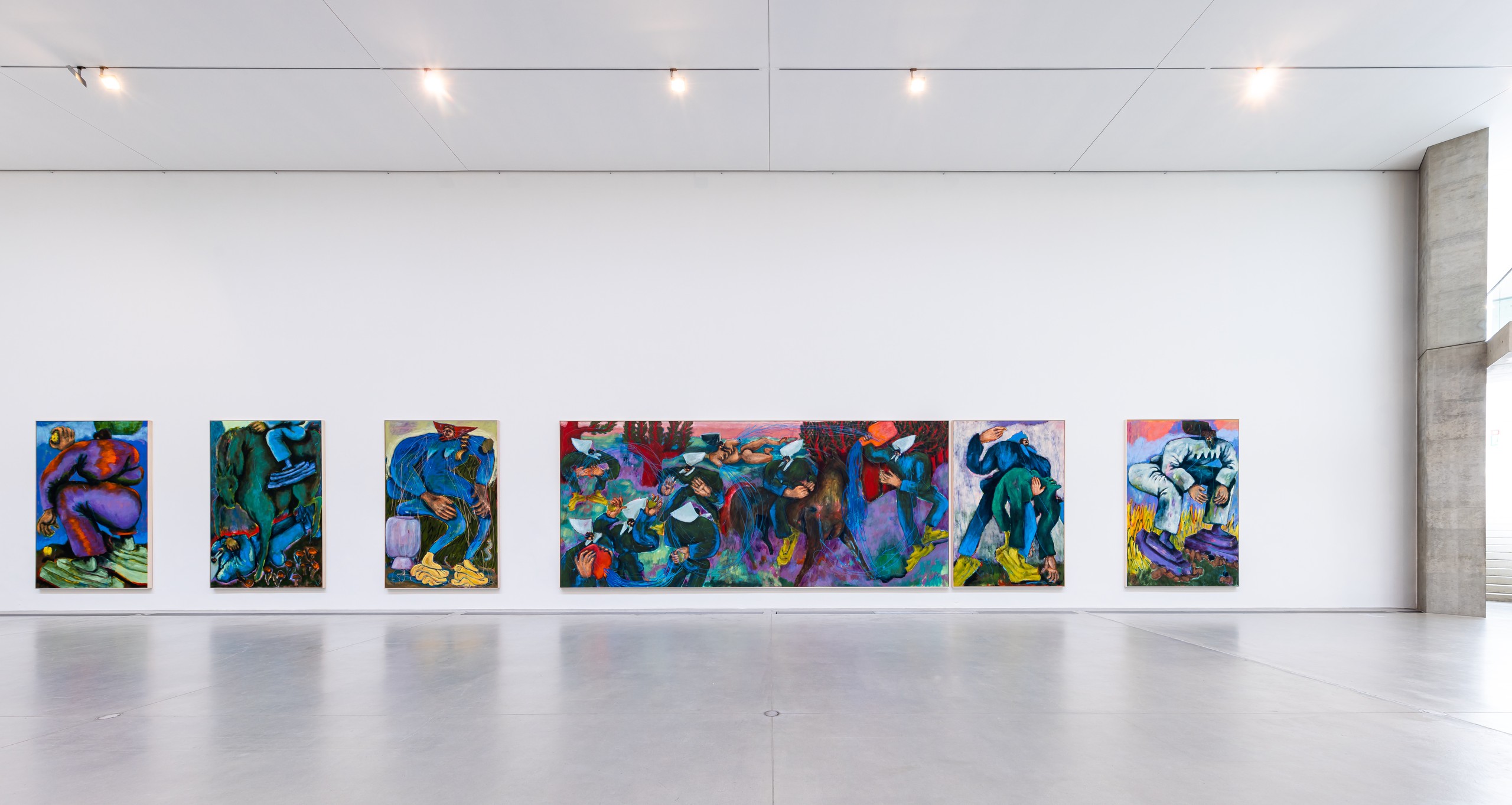
Installation view, Beautiful Disasters, Langen Foundation, Neuss, 2023
Photo: Sebastian Drüen
The Langen Foundation is pleased to present Beautiful Disasters, Conny Maier’s first comprehensive institutional exhibition. The exhibition will be on display from 3 September 2023 through 7 April 2024 at the former NATO base in Hombroich, which housed Pershing missiles during the Cold War. Curated by Udo Kittelmann, who has frequently worked with Maier, the show will be made up of a series of images created especially for this exhibition and of the artist’s earlier works.
Maier’s large-scale paintings reflect on the polarities of dominance and submission, equilibrium and instability, the human and the non-human. In Beautiful Disasters, she responds to 21st century questions of immoderation and fundamental distrust of reason with relentlessly colorful answers. Misshapen figures, seen with wide open mouths and gelatinous appendages, often multi-breasted and donned in malformed headdresses, wander through her canvases in vivid, sweeping brush strokes. Her compositions oscillate between fascination and repulsion, beauty and the grotesque, to depict life beyond the expected. Considered together, Maier’s abstractions offer an unflinching look at the end of the Holocene and the realities of our new age and ask what kind of a new day might dawn.
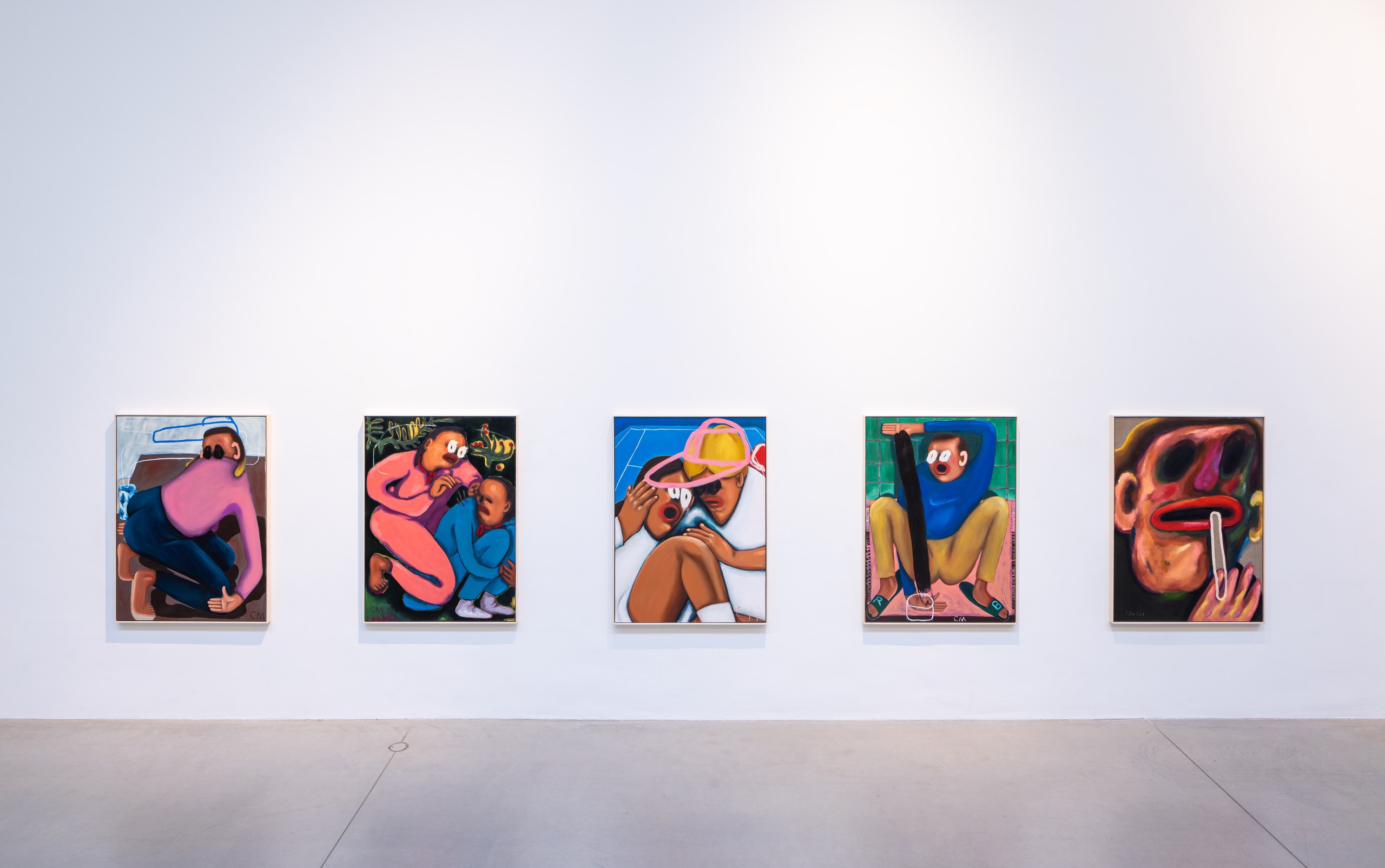
Installation view, Beautiful Disasters, Langen Foundation, Neuss, 2023
Photo: Sebastian Drüen
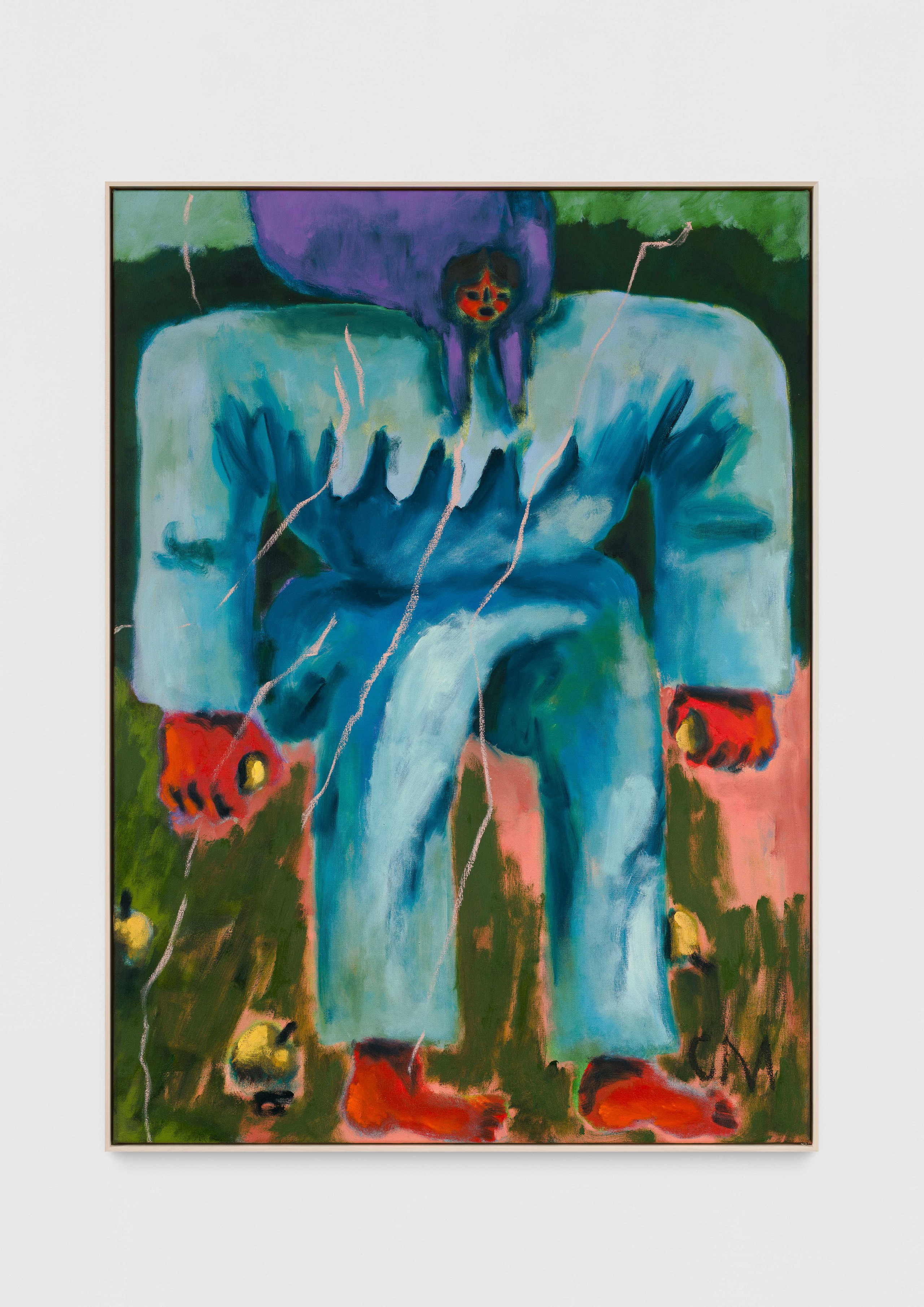
Conny Maier
Zorn 7 mit Apfel/ Apfelwickler, 2023
Oil, oil stick, pigment on canvas
150 × 110 cm
59 × 43 1/2 in
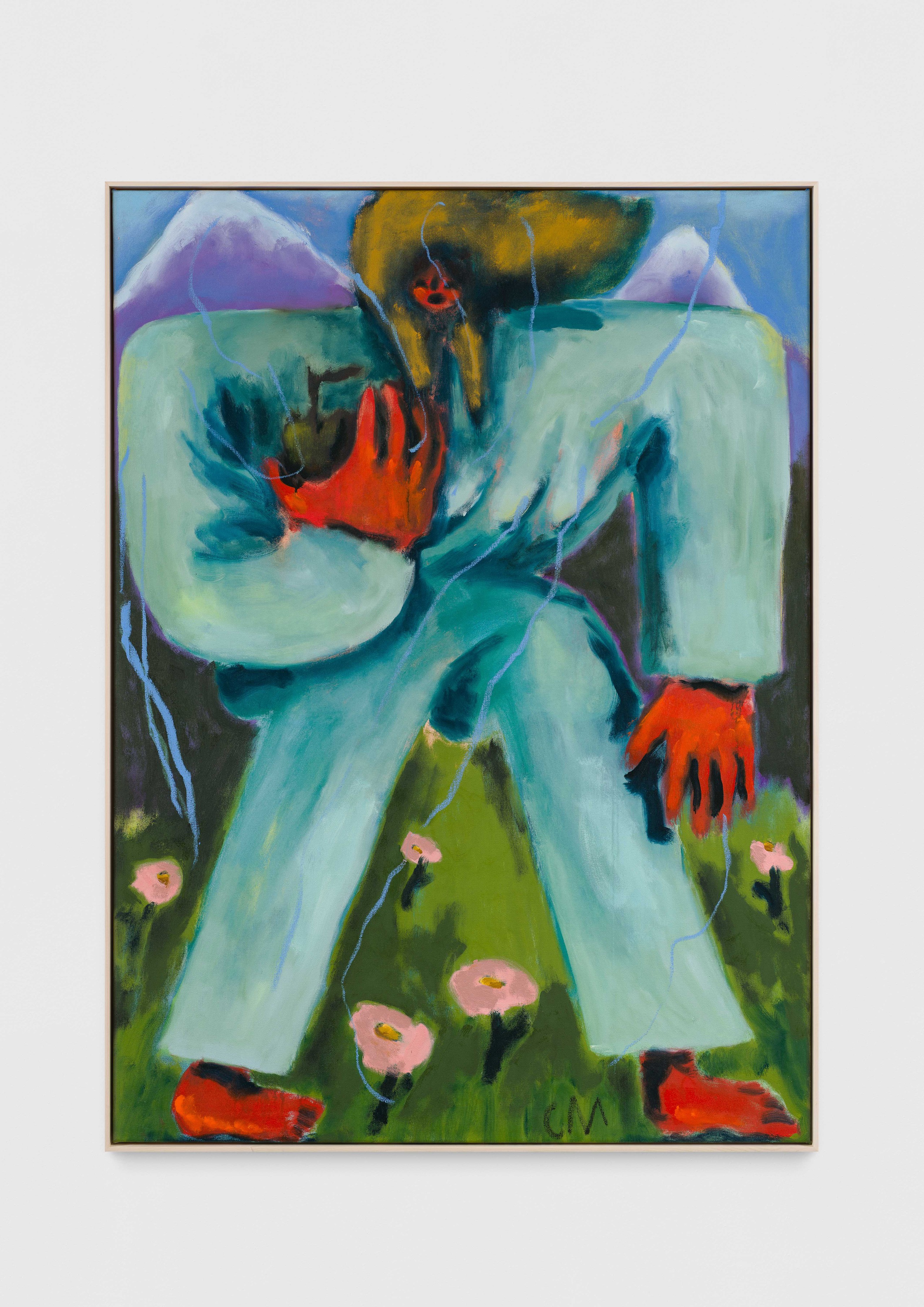
Conny Maier
Bienen, 2023
Oil, oil stick, pigment on canvas
150 × 110 cm
59 × 43 1/2 in
Art Basel Unlimited 2023
curated by Giovanni Carmine
A ‘source’ is where a stream of water begins, but it is also a word that refers to a kind of generative force: a cause, a point of origin, an initiator. All of these meanings permeate Conny Maier’s large-scale diptych The Source, whose ambivalence is heightened by the unclear relationships between the painting’s figures. There is a peculiar timelessness to The Source, and the scenes it depicts could just as easily take place in the distant past as in a brave new world future. Its pastoral setting, archetypal subject matter, and vibrant colors are unsettled by the misshapen figures that inhabit the landscape – and threaten to tear this world asunder. Yet, their warped bodies can also be read as a testament to the perpetual struggle of finding balance in an ever-changing world.
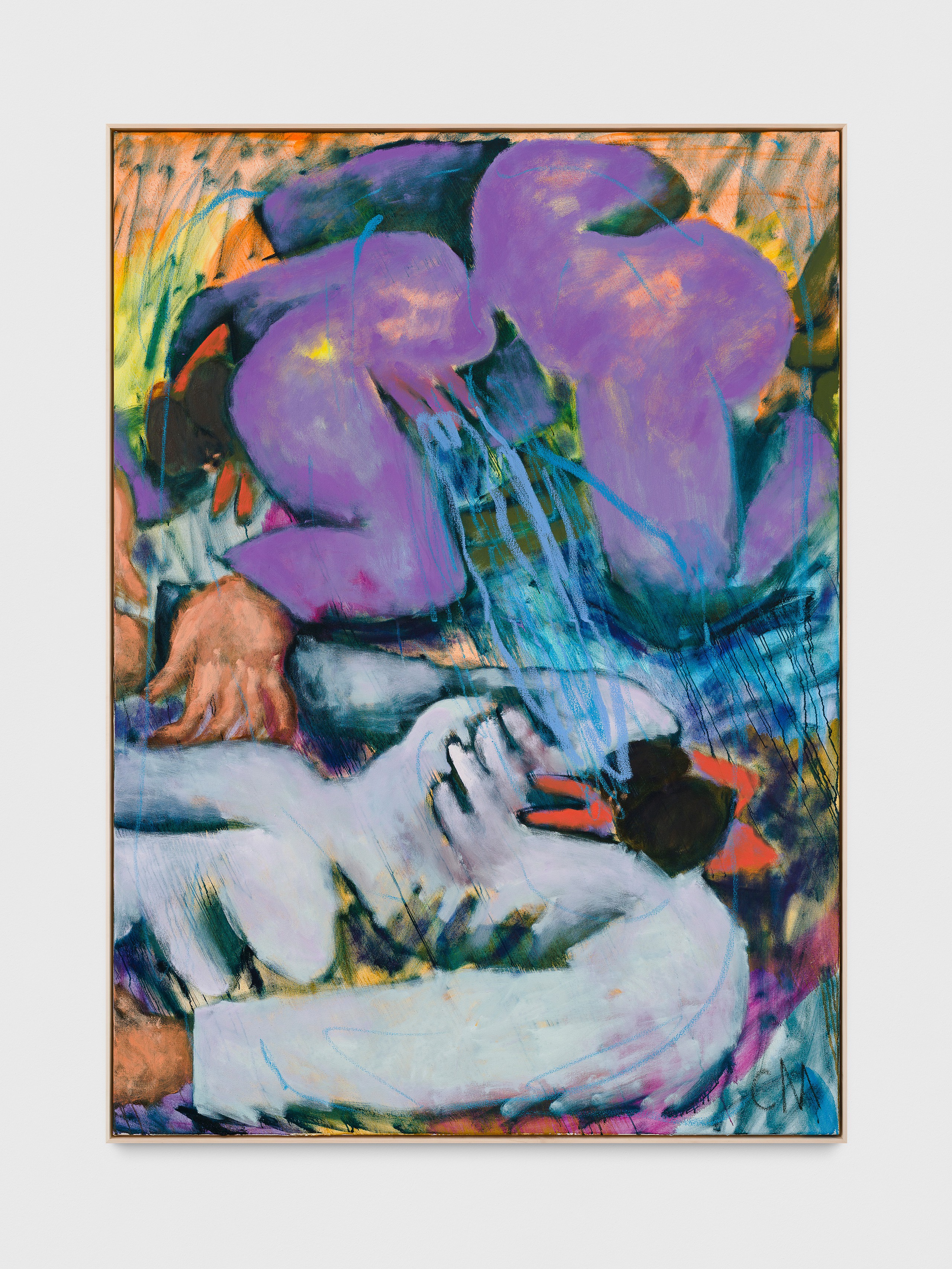
Conny Maier
Chest to mouth, 2023
Oil, oil pen, pigments on canvas
180 × 130 × 4 cm
71 × 51 × 1 1/2 in
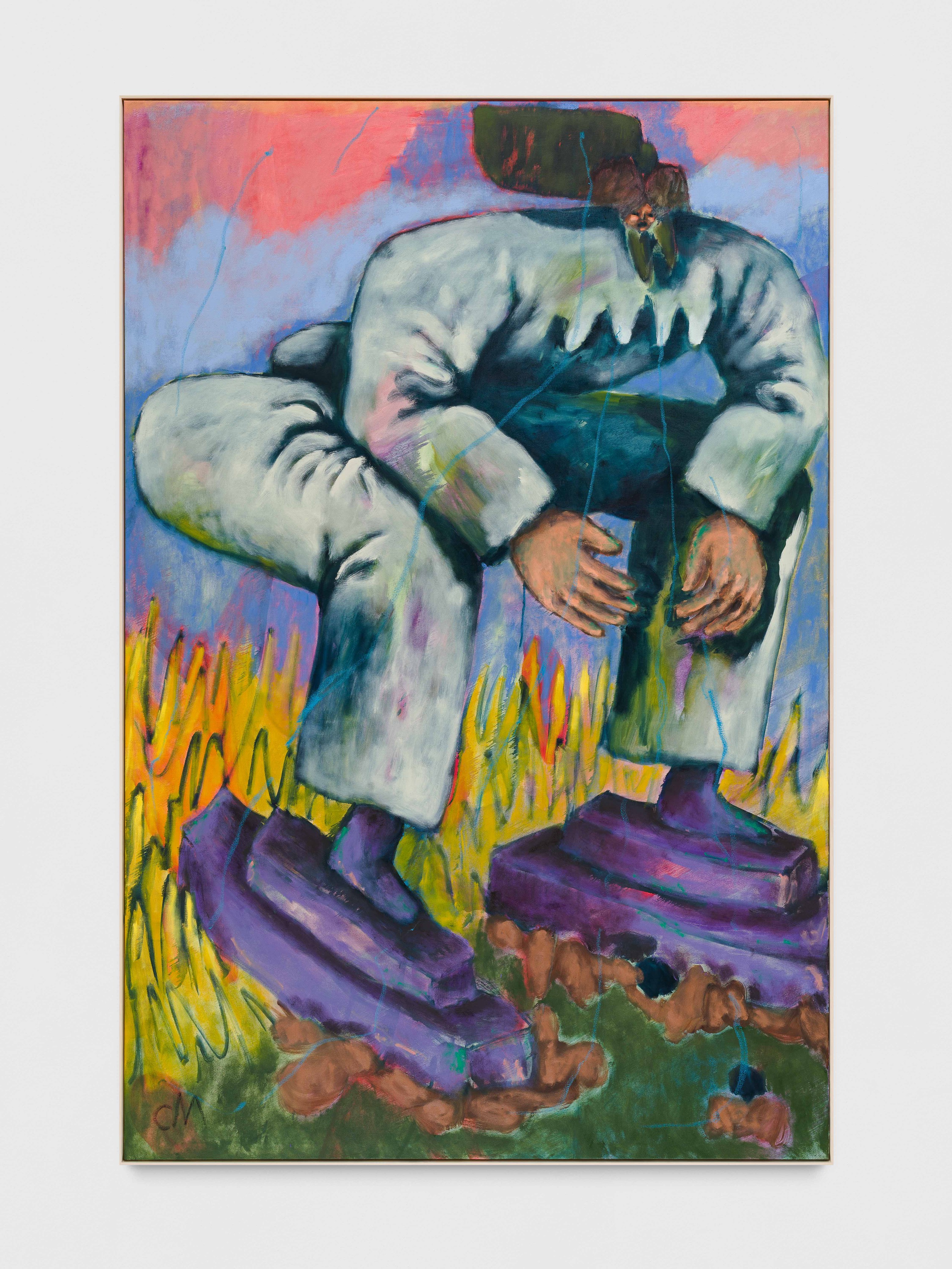
Conny Maier
Gigante 1, 2023
Oil, oil stick homemade, pigments
300 × 200 × 6 cm
118 × 78 1/2 × 2 1/2 in
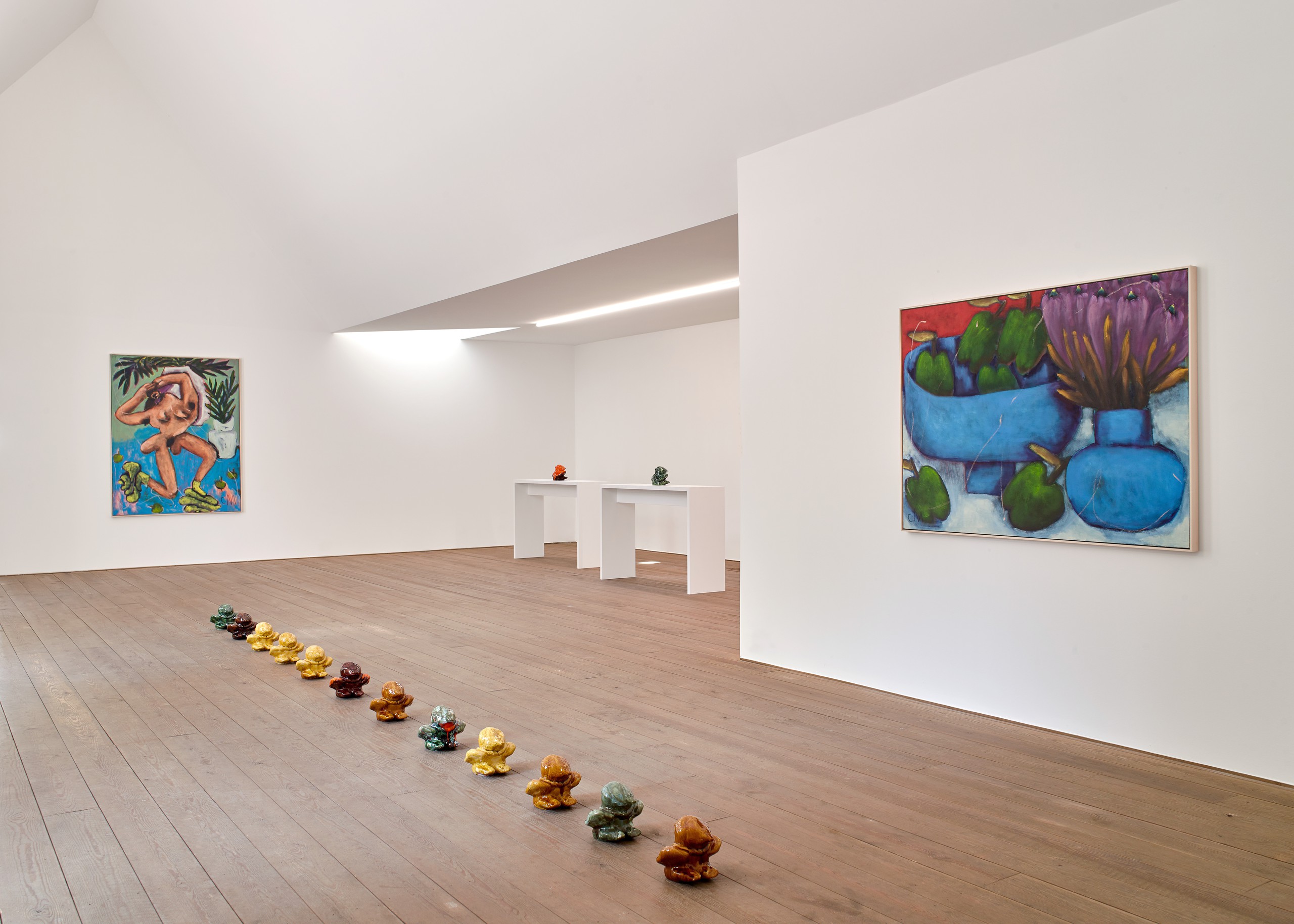
Installation view, Where have all the flowers gone?, De 11 Lijnen, Belgium, 2022
Conny Maier did not originally specialize in painting, yet she felt always drawn to it, creating various de-individualized characters she had invented; with open mouths and jelly feet, captured with vibrant colors in swirling brushstrokes, wandering through canvases often encompassing nature. To focus on Maier’s paintings of flowers and vases is to return - in a way - to the origins of her art: Her paintings are a colorful cosmos shifting between sublime beauty and the grotesque.
For her exhibition at De 11 Lijnen curated by Udo Kittelmann, the artist continues her exploration of nature concentrating on placing bouquets of flower pieces in vases or full blooms without vases and then again vases without colorful flora at all. Still life remains a feature in her series that brings to mind and perhaps leaves us with a question: “Can one paint flowers today?” Looking at Conny Maier paintings, the answer is a definite “yes.”
Ever since the Impressionist artists like Vincent van Gogh adopted flower vases as his subject and Paul Cézanne painted a famous series of still lifes with basket of apples resting on layered tablecloths, and there is of course Claude Monet’s Les Nymphéas series, the still life and painting flowers continuous to remain a popular feature in art movements. Composed of a combination of oil, oil stick and pigments on canvas, Conny Maier’s paintings created for her first exhibition at the space for contemporary art in Oudenburg, are - one can say - a continuation of this “tradition” and yet at the same time, it is more than that: it is a collection of ideas inspired by and collected from her travels around the world, which Maier first sketches in a notebook and then transforms on canvases –– some are large, others are small depictions of bold and whimsical imagery of life beyond the ordinary.
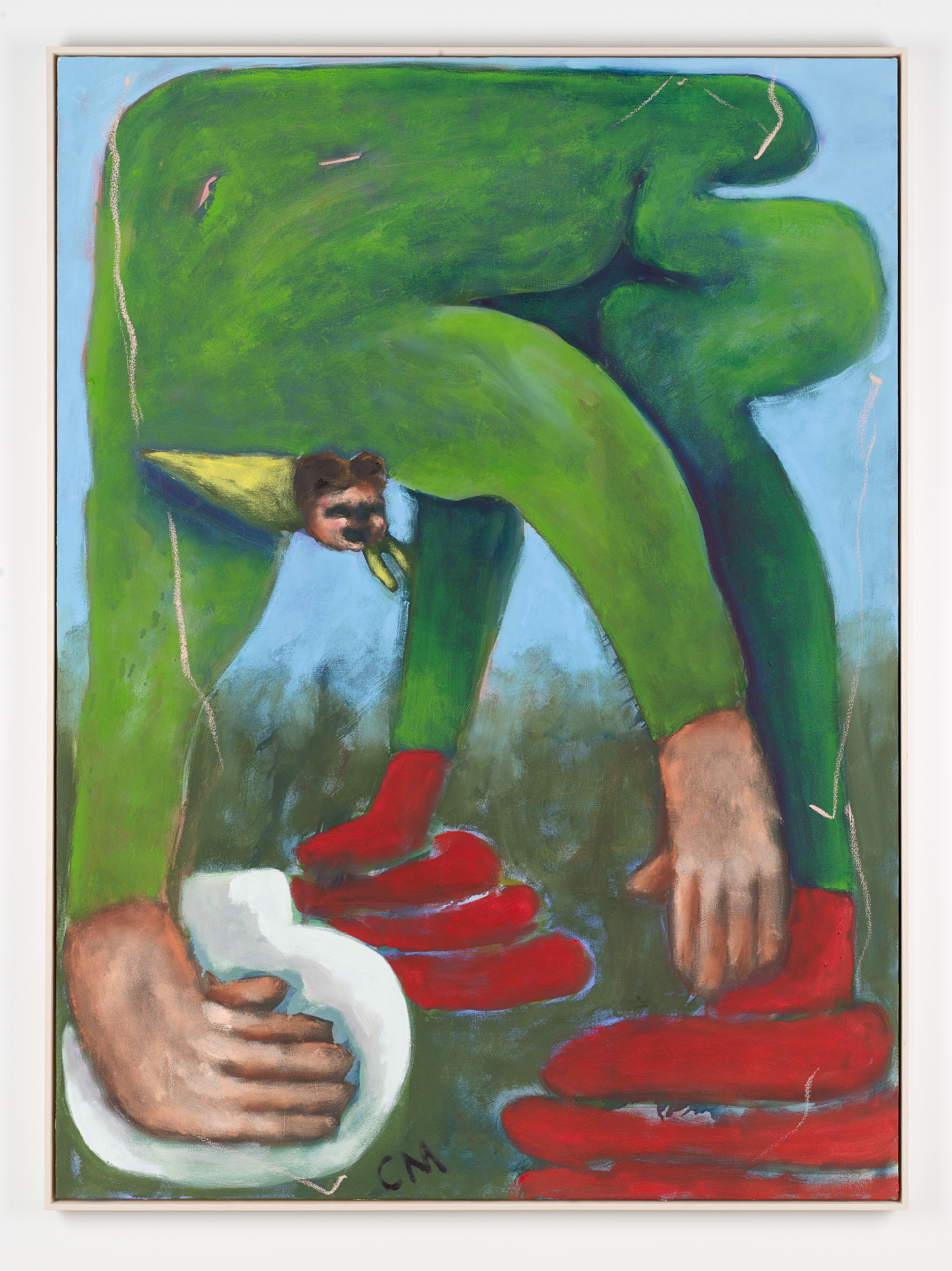
Conny Maier
Aussichten, 2022
Oil, pigment, oil stick on canvas
150 × 110 cm
59 1/2 × 43 1/2 in
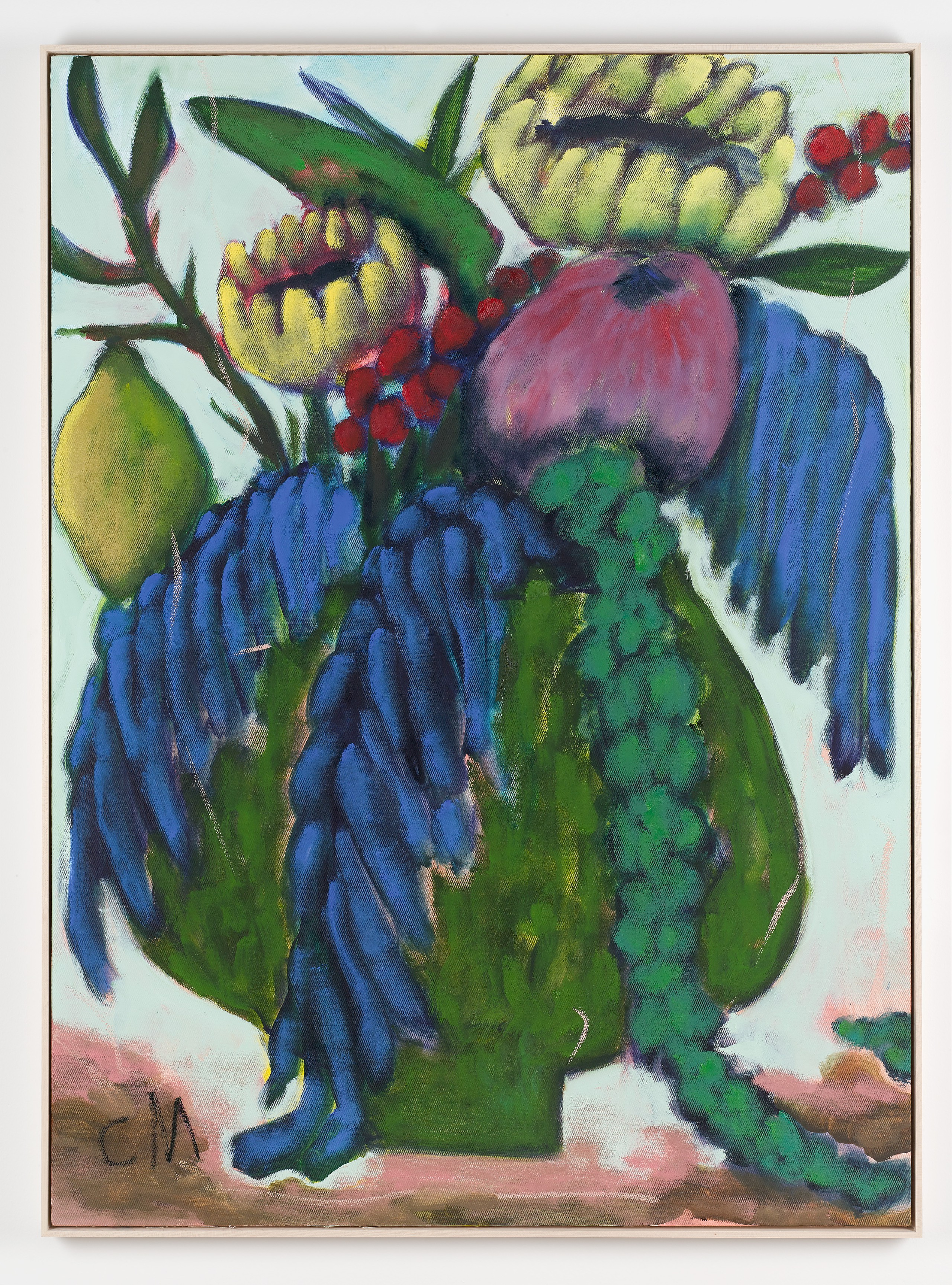
Conny Maier
Lago Maggiore, 2022
Oil, pigment, oil stick on canvas
150 × 110 cm
59 1/2 × 43 1/2 in
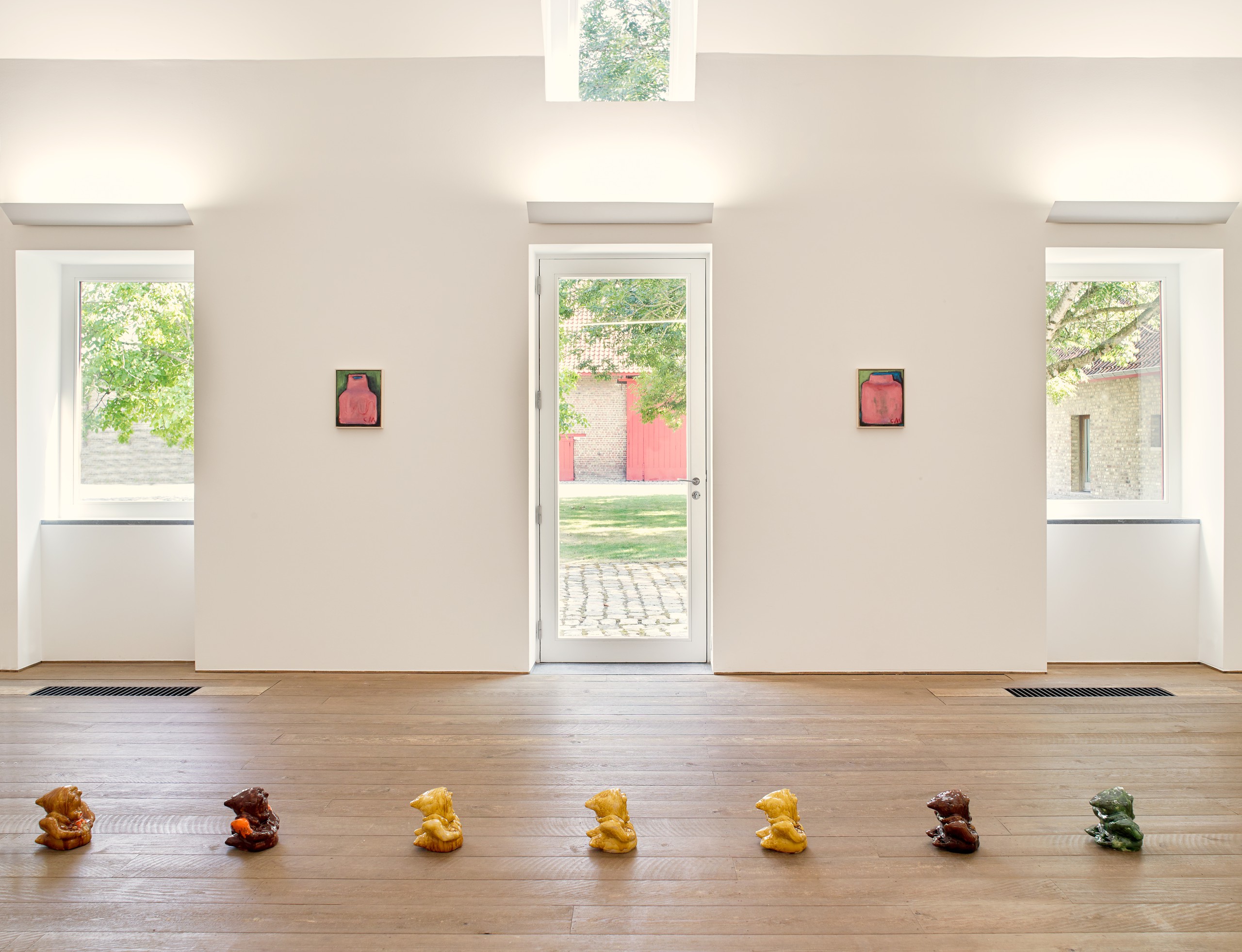
Installation view, Where have all the flowers gone?, De 11 Lijnen, Belgium, 2022
Feels like rabies
Société, Berlin 2022
In Conny Maier’s work we see the outcome of a struggle between creative and destructive impulses; the wants of individuals and those of the collective; the beautiful and the downright cruel. We see a desire to make great big paintings of very painterly subjects.
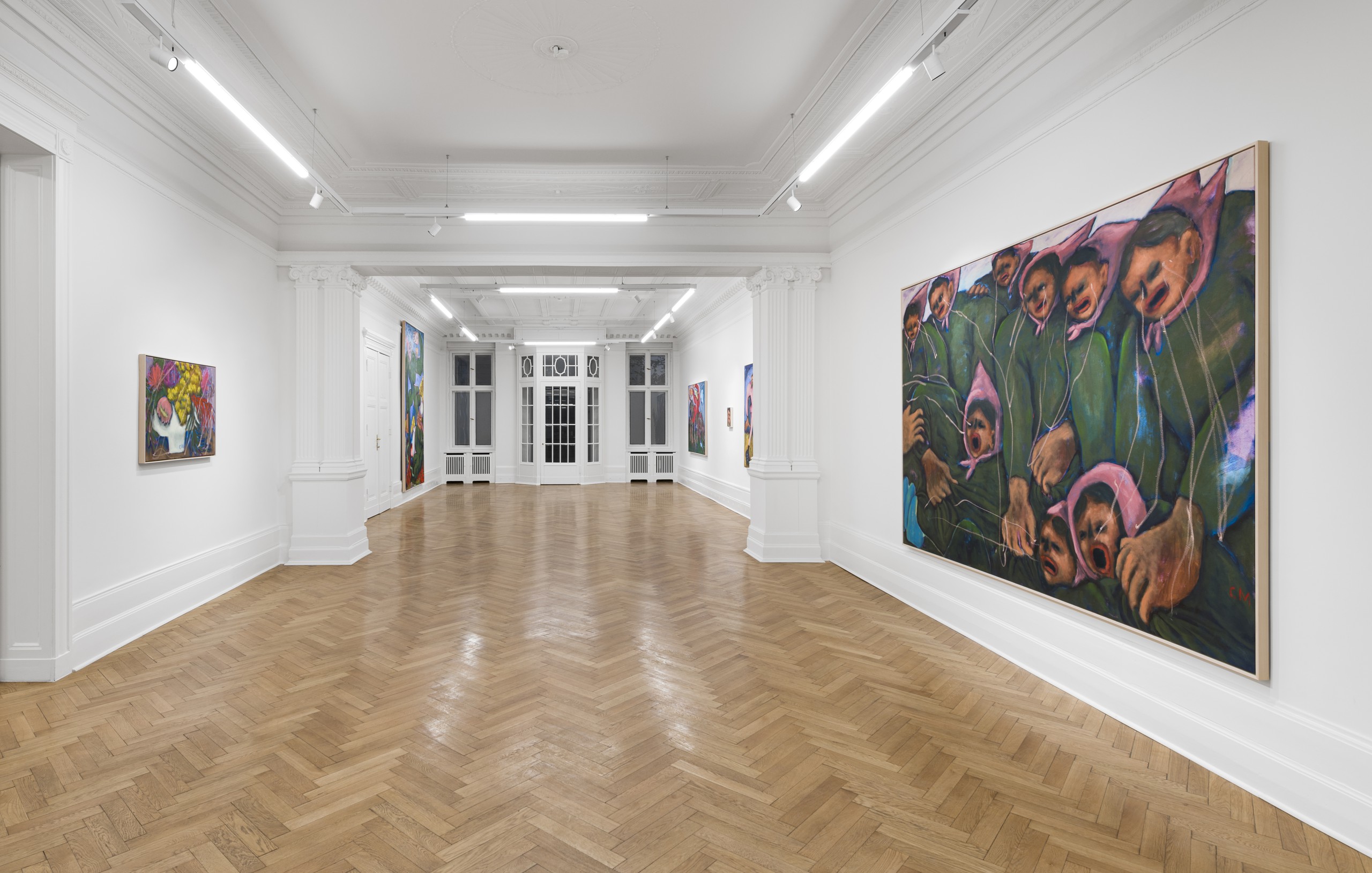
Installation view, Feels like rabies, Société, Berlin, 2022
In Feels like rabies, Maier presents a series of new paintings that explore fundamental questions about human nature, ecology, dominance, and control. The works are populated by figures who seem out of sync with their environment, as if they might topple over at any moment in their cruel struggle for ascendancy over nature and other beings. Anna Lowenhaupt Tsing writes of the “ambivalence of salvage,” how damaged worlds nonetheless contain an abundance of life, beauty, resilience, and the potential for dynamic new alliances between different life forms—and Maier’s paintings unflinchingly delve into this space between destruction and renewal.
Conny Maier narrative paintings portray extreme psychological states through a style of contorted figuration that verges on caricature. In Dynamik, nine figures come together to form a pulsating mass: a jumble of bodies, hands pulling fabric, and long rivers of tears. The figures who inhabit the work convey an ambiguous bundle of emotions—they could be experiencing paroxysms of extreme grief, struggling to inflict pain upon one another, or both. The term dynamic indicates a form of continuous and productive activity or change and Maier nods towards the delicate balance between anguish and brutality in many of her paintings. There is a peculiar timeless to Maier’s work and the scenes that she depicts are almost impossible to place: they could just as easily exist in some not-so-distant past as a brave new world future. Their pastoral settings lend them a folkloric quality that is unsettled by the figures who inhabit these landscapes—and threaten to tear this world asunder. And yet, their deformed bodies can also be read as a testament to the perpetual struggle of finding beauty and balance in a constantly changing world. Umstände depicts a highly cropped view of a crouching figure with two snakes biting their bottom. Her strangely elongated buttocks seem to indicate that she is in a state of vegetal transformation, blossoming like inverted tulips. In Rabies, a woman stands in a golden field with a rabbit dangling from her hand. A small puncture wound glistens on her thumb, indicating the inflamed delirium and collapse to follow. The off-kilter figuration in Maier’s works, coupled with the inter-species entanglements that they depict, articulate precarity and vulnerability as elemental states of being. As Lowenhaupt Tsing writes of living and attempting to thrive in a contaminated world, “Precarity is the condition of being vulnerable to others. Unpredictable encounters transform us; we are not in control, even of ourselves. Unable to rely on a stable structure of community, we are thrown into shifting assemblages, which remake us as well as our others.“
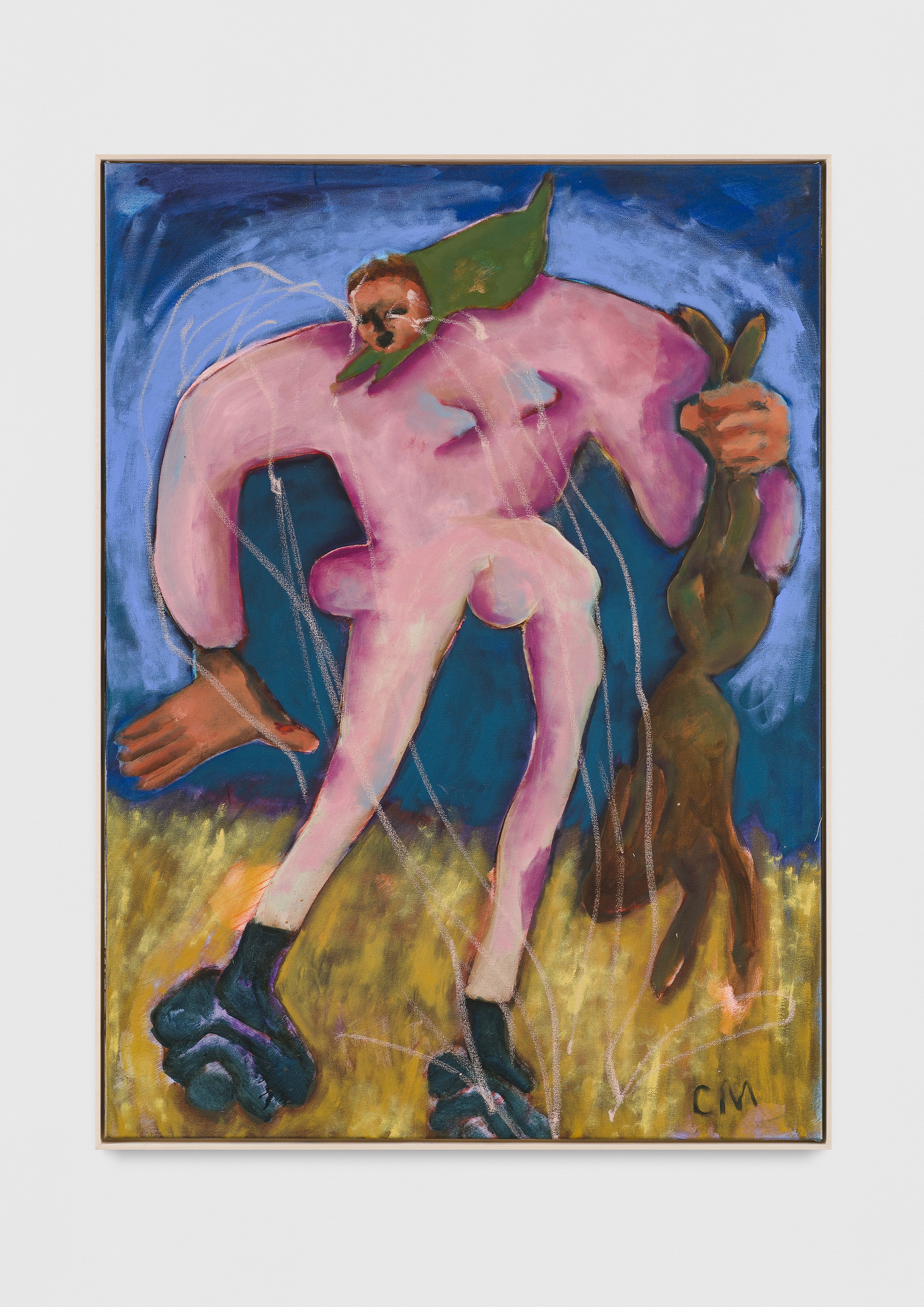
Connie Maier
Rabies, 2022
Oil, oil stick, pigments on canvas
152.5 × 112.5 × 4.6 cm
60 1/2 × 44 1/2 × 2 in
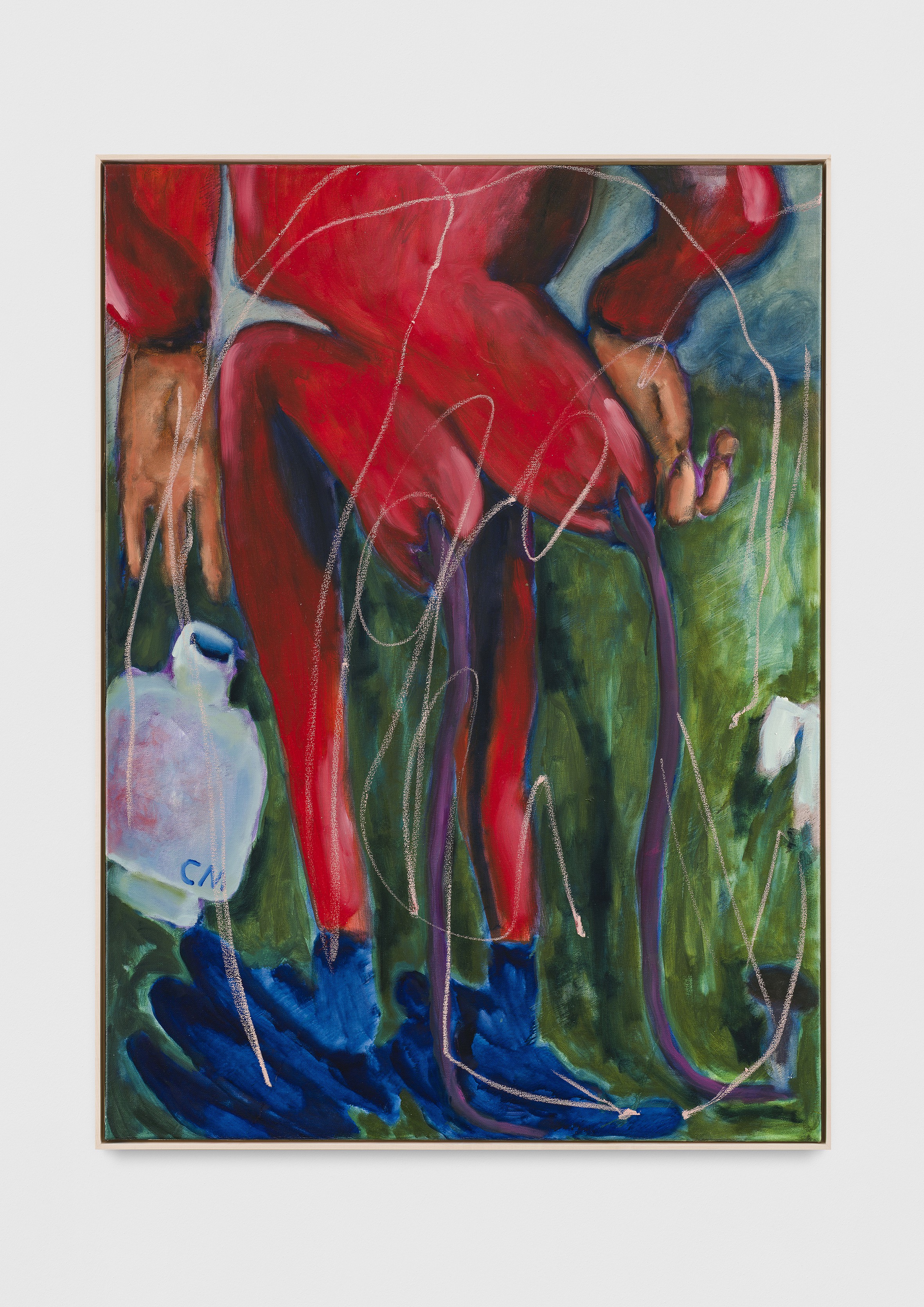
Conny Maier
Umstände, 2022
Oil, oil stick, pigments on canvas
152.5 × 112.5 × 4.7 cm
60 1/2 × 44 1/2 × 2 in
Artist of the Year 2021
Palais Populaire, Berlin, 2021
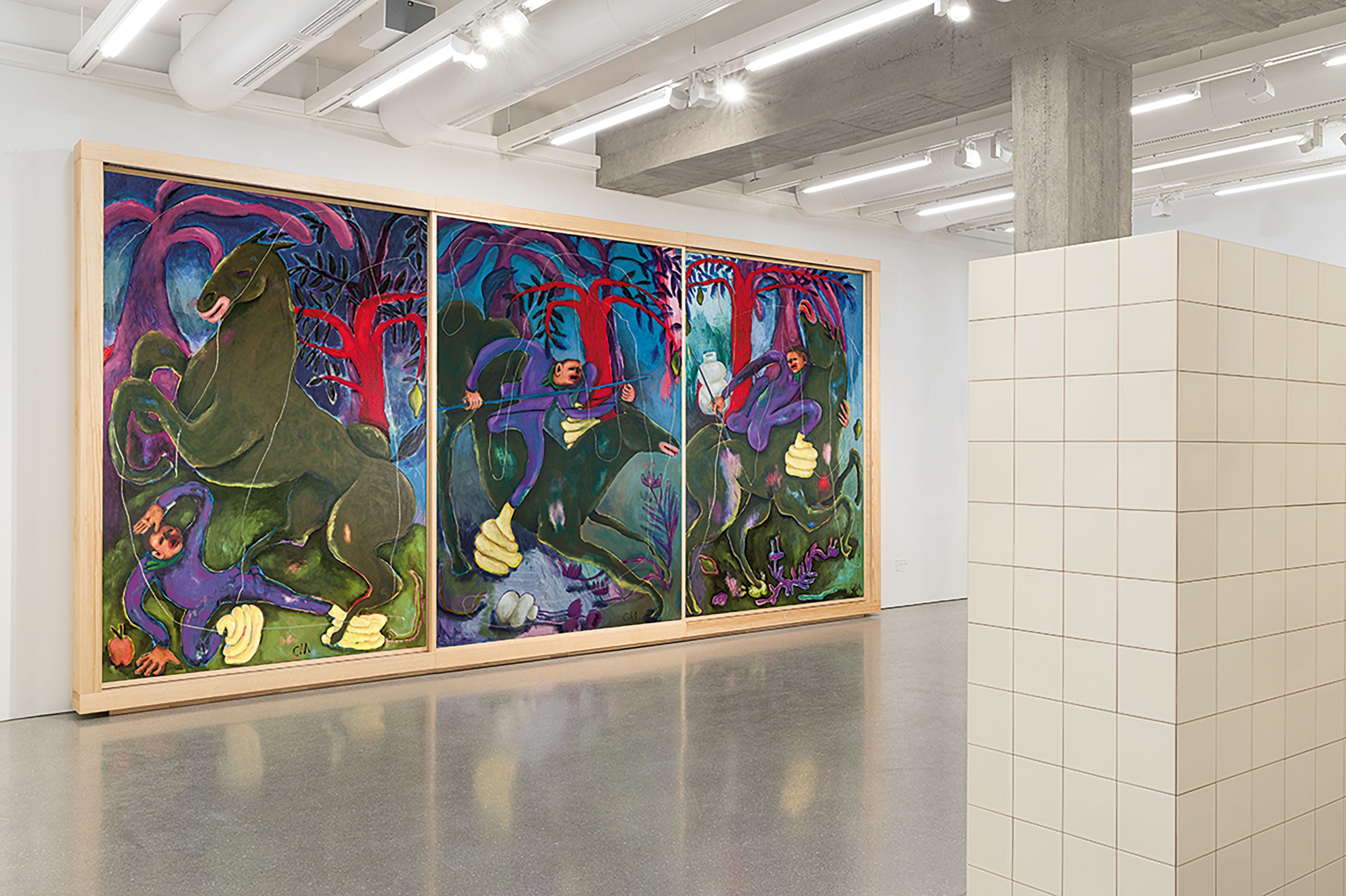
Installation view, Deutsche Bank Artist of the Year 2021, Palais Populaire, Berlin, 2021
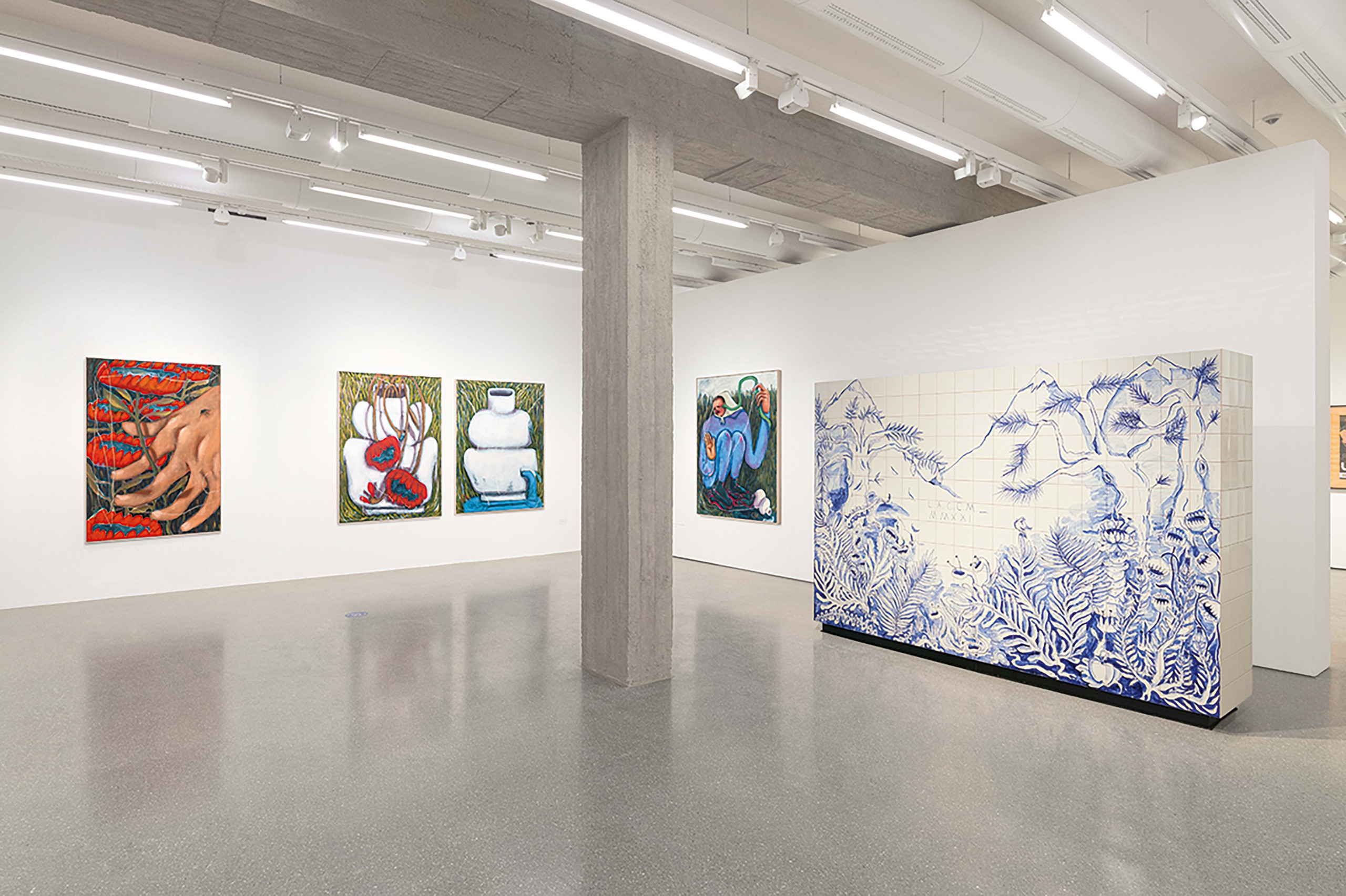
Installation view, Deutsche Bank Artist of the Year 2021, Palais Populaire, Berlin, 2021
Die Zähmung
Kunstverein Heppenheim, 2020, curated by Cornelius Tittel
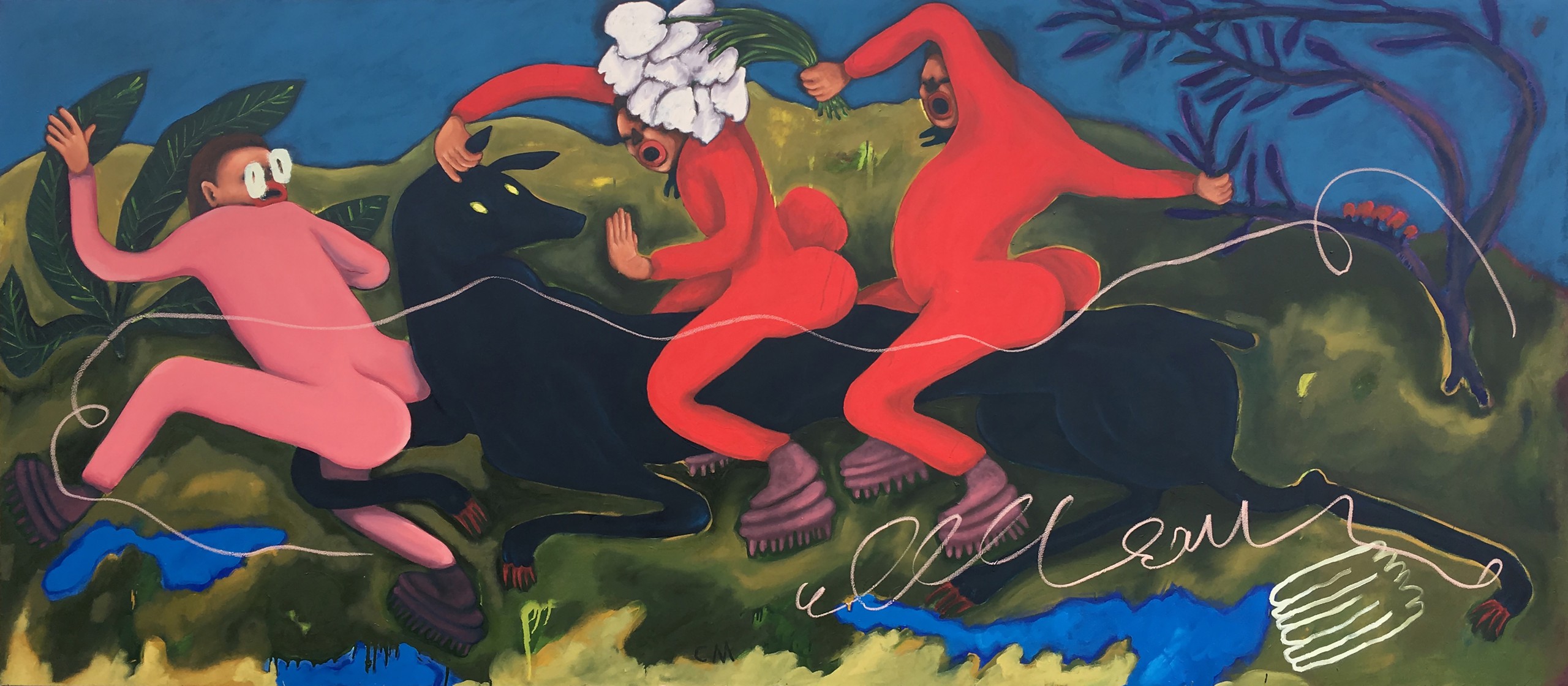
Conny Maier
Die Zähmung, 2020
Oil, oil stick on canvas
395 × 175 cm
155 1/2 × 68 7/8 in
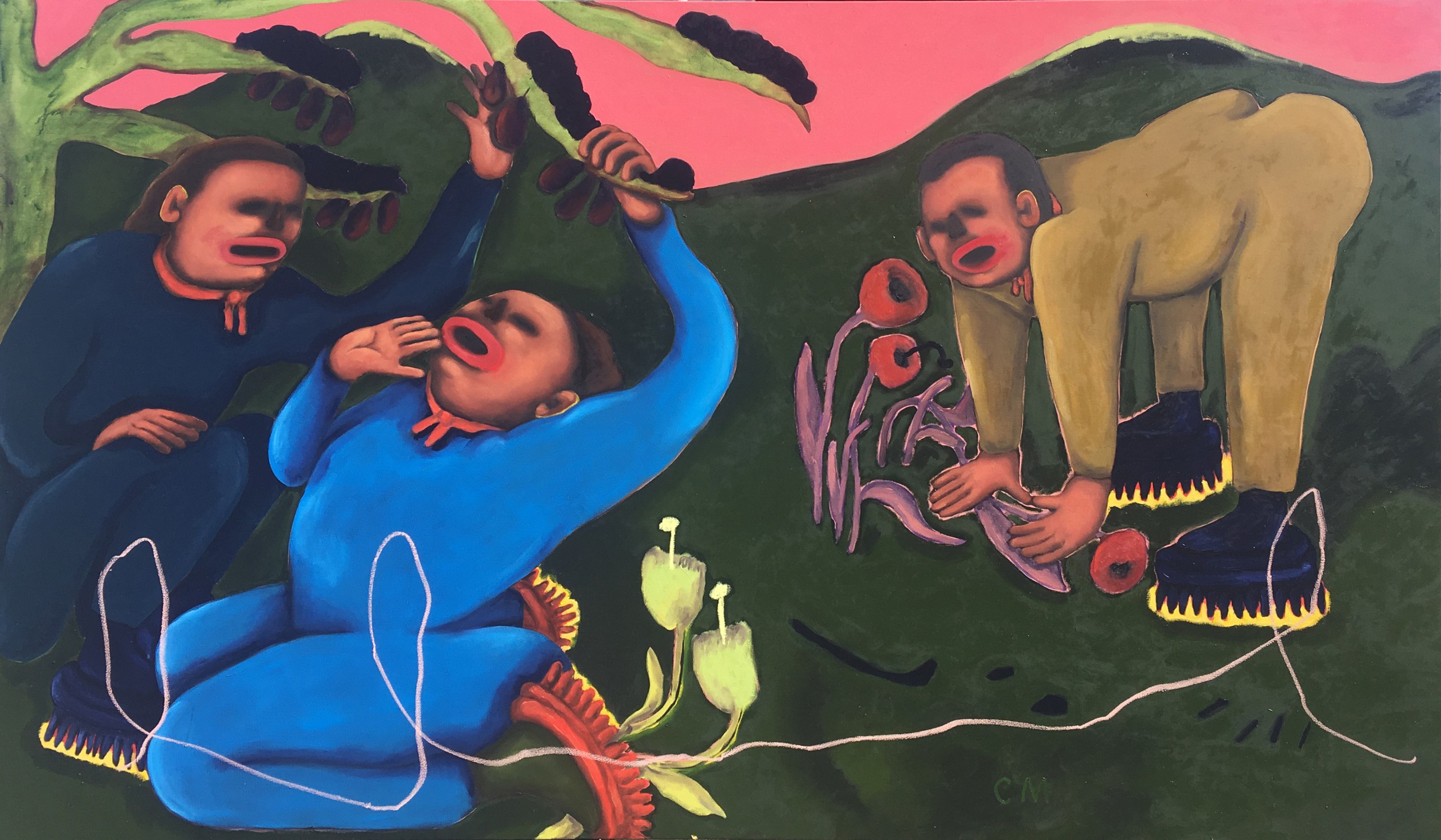
Conny Maier
Domestic III, 2020
Oil, oil stick on canvas
295 × 175 cm
116 1/8 × 68 7/8 in
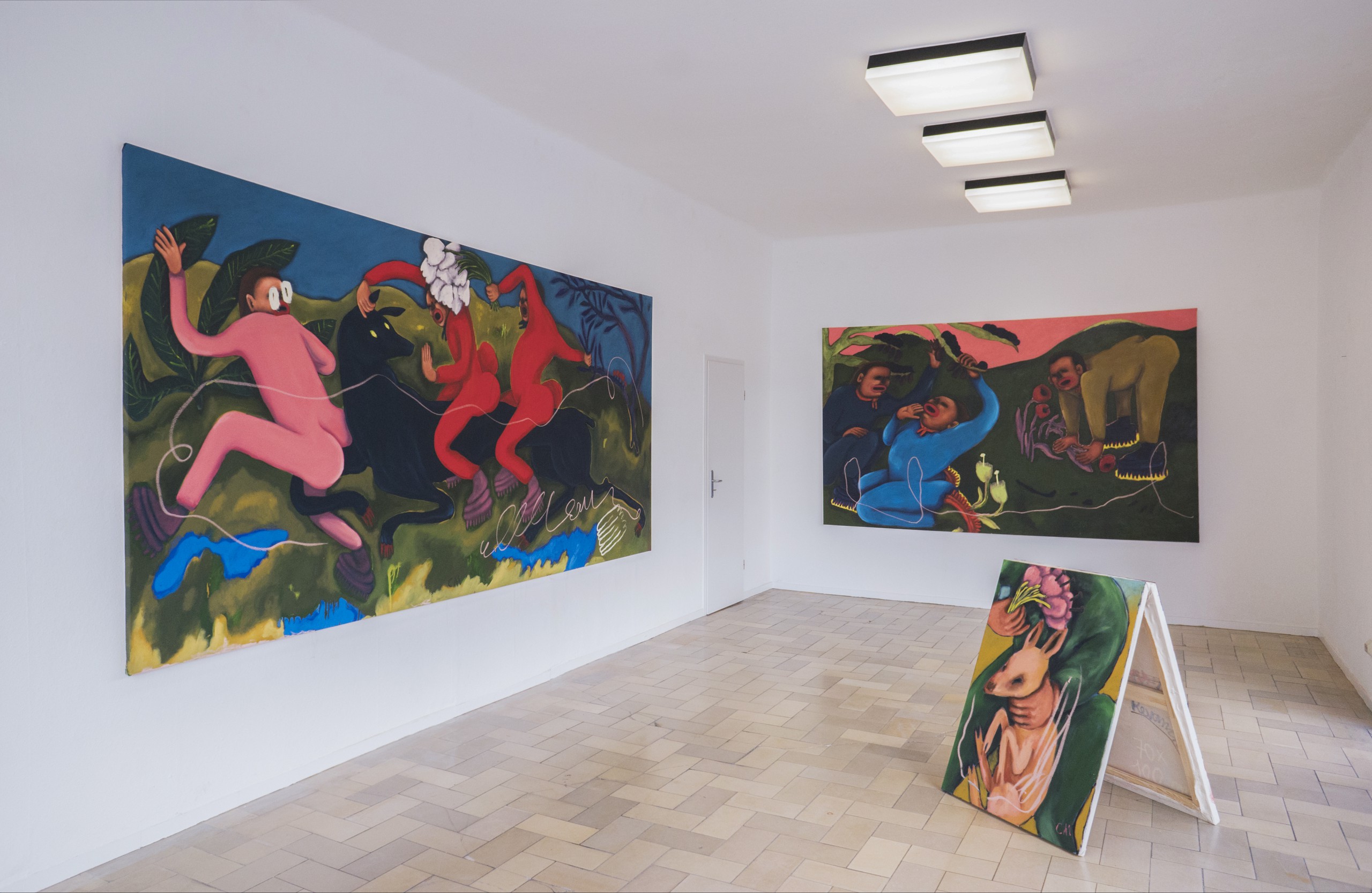
Installation view, Die Zähmung, Kunstverein Heppenheim, 2020
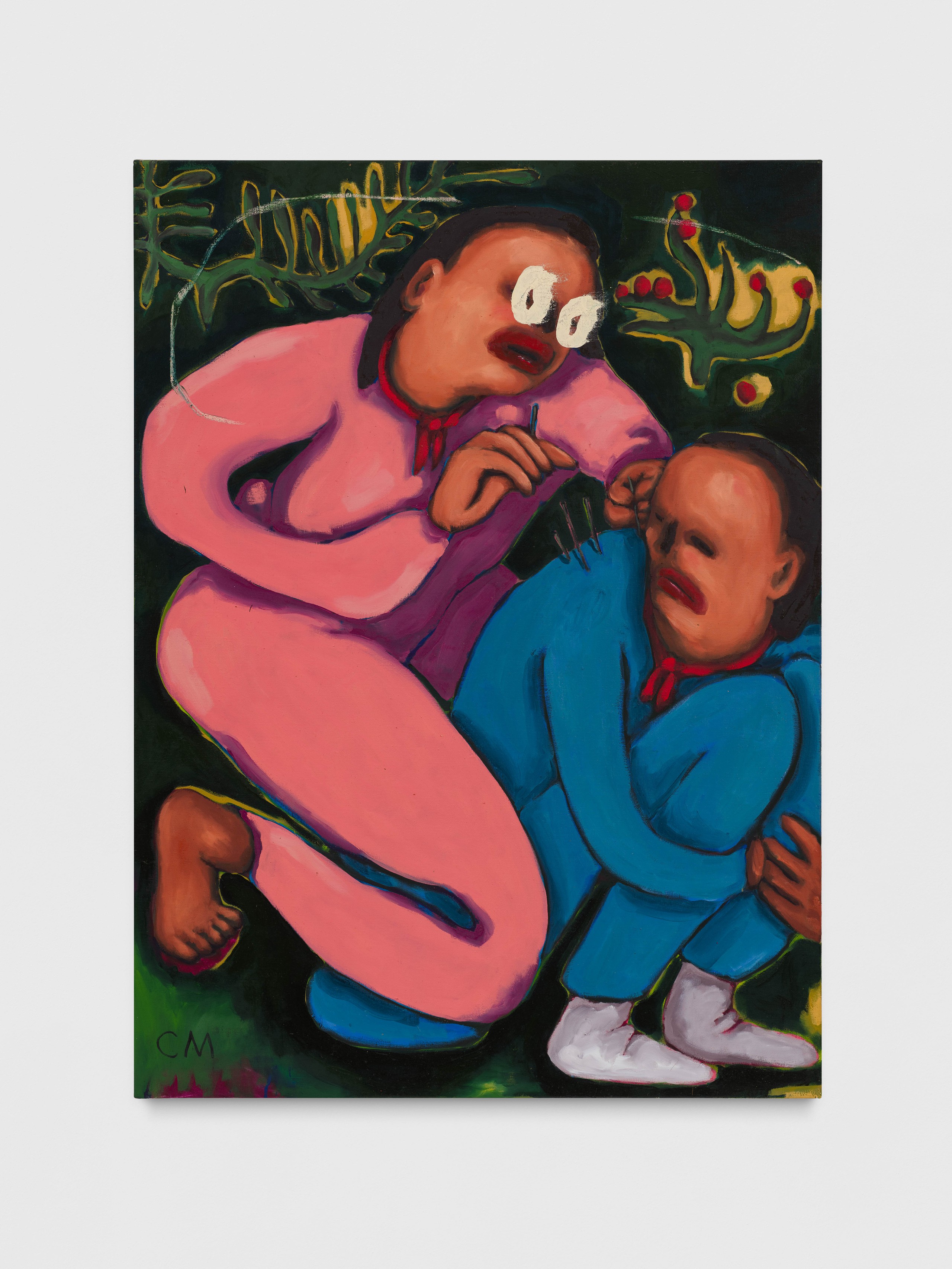
Conny Maier
Heilung, 2020
Oil, oil stick on canvas
150 × 110 cm
59 × 43 1/2 in
Conny Maier
Solo exhibitions
-
2023
Beautiful Disasters, Langen Foundation, Neuss
-
2022
Feels like rabies, Société, Berlin
Where Have All The Flowers Gone, De 11 Lijnen, Oudenburg
Durst, Steine, Scherben, Ruttkowski;68, Paris
-
2021
Grenzgänge 2, König Galerie, Seoul
Grenzgänge, Ruttkowski;68, Cologne
-
2020
Art Cologne, König Galerie, Köln
Die Zähmung, Curated by Cornelius Tittel, Kunstverein Heppenheim, Heppenheim
Domestic, König Galerie, Berlin, Germany
002, Conny Maier & Andreas Schmitten, Ruttkowski;68, Paris
-
2019
I didn’t mean to burn the woods, Curated by Office Impart, S.M.A.C., Berlin
Chronik der laufenden Ereignisse 2, Art Berlin Fair, Ruttkowski;68, Berlin
Im Trüben, Ruttkowski;68, Cologne, Germany
Chronik der laufenden Ereignisse, Christian Rosa Residency, California
-
2018
Am Rothenbaum, Ruttkowski;68, Paris, France
-
2017
a.Tennis, Parallel Vienna – Studio 22, Vienna
Alles very good./- Nothing matters, ung-5, Cologne
-
2016
The cosy fire. / Alles GUT. – Nothing Matters, Beinghunted, Berlin
COKE FIRST PT.II, BOLD Room, Los Angeles, USA
-
2015
COKE FIRST, Beinghunted./net.work, Berlin, Germany
-
2014
Amerikanische Situation & Zigaretten, Volume Galerie, Berlin, Germany
Group exhibitions
-
2023
DORF, sommer.frische.kunst, Bad Gastein, Austria
The King Is Dead, Long Live the Queen, Museum Frieder Burda, Baden-Baden
Anbaden, Villa Schöningen, Potsdam
-
2022
Deutsche Bank Artist of the year 2022, MUDEC, Milan
HOW TO & KNOW-HOW, Neue Galerie Gladbeck, Gladbeck
-
2021
Deutsche Bank Artists of the year 2021, Palais Populaire, Berlin
-
2020
This must be the Place, Villa Schöningen, Potsdam
Dorf 4 – The last one, Kunstverein Ulm, Ulm
Mixed Pickles 8, Wilhelm Hallen, Berlin
You Can Do Better – Bad Painting, Recommended by Laura Helena Wurth, Elektrohalle Rhomberg, Salzburg
Mixed Pickles 7, Ruttkowski;68, Cologne
Art Brussels, Ruttkowski68; Brussels
Nine to know, Curated by Jenny Brosinski, Ruttkowski;68, Paris
-
2019
Mixed Pickles 6, Michael Horbachstiftung, Köln
04, PM/AM, London
DORF 3, Im Gerinne 2, Wullenstetten
Mixed Pickles 5, Funkhaus, Ruttkowski;68, Berlin
Disorder, Los Angeles
Atlantis 3000’ 1, Atelier Concorde, Lisbon
Atlantis 3000, PM Gallery, Lisbon
-
2018
Dorf 2, Im Gerinne 2, Wullenstetten
Mixed Pickles 4, Michael Horbach Stiftung, Köln
Grand Opening, Ruttkowski;68, Paris
Tangerian dreams, Curated by Johann König, RBMA Funkhaus
My body doesn’t like summer, Curated by Stephen Kent, Haverkampf Galerie, BerlinMixed Pickles 3, Ruttkowski;68, Gallery Weekend, Berlin
PROVINCETOWN, MEWO Kunsthalle, Memmingen
GRAND OPENING, Ruttkowski;68, Köln
WAISTING – TIME VOL. 1 – THE NATURE EDITION., Objekt unserer Tage, Berlin -
2017
Mixed Pickles 2, Ruttkowski;68, Michael Horbach Stiftung, Köln
DORF, Im Gerinne 2, Wullenstetten
HYPER HYPER, Michael Reid Gallery, Berlin -
2016
Woman in disguise, Volume Gallery, Berlin
Hideout FM, Hideout FM Gallery, Los Angeles
-
2015
EXTENDEN VISIONS, Blockbuster Exhibition Gallery, Berlin
-
2013
RESEEN, MADE, Berlin
-
2005
Berliner Liste, Galerie Hermann & Wagner, Berlin
